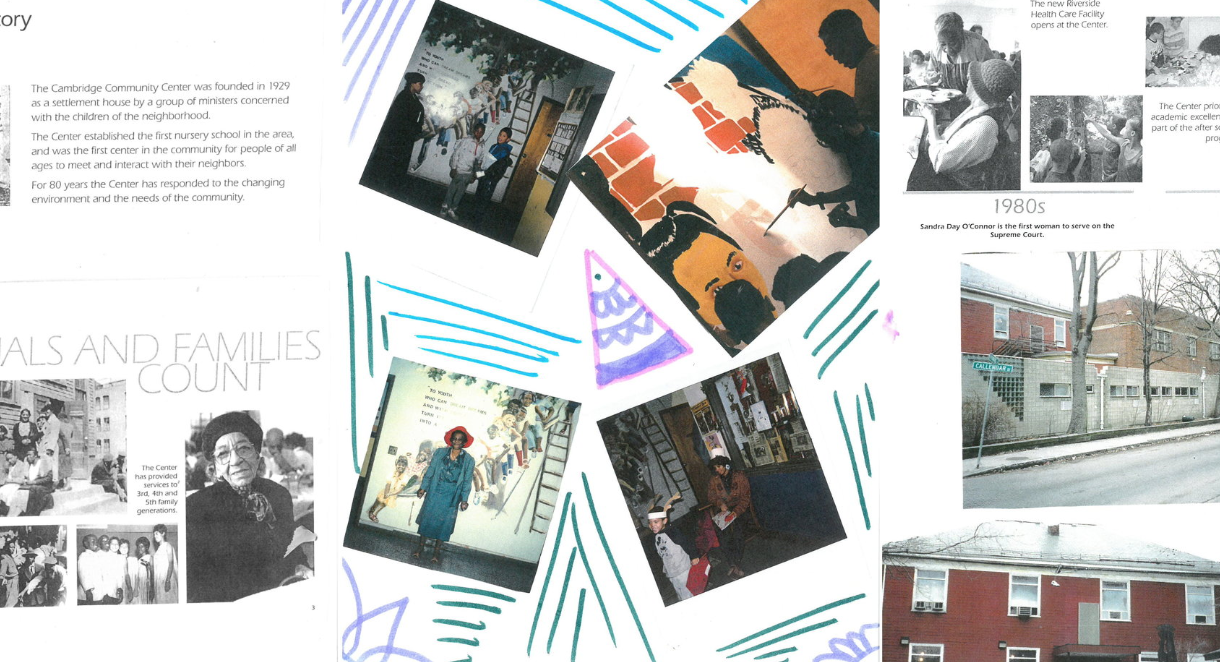Inman Square Business Backstories is a photo documentary and community project about the behind-the-scenes and personal stories of the small business “ecosystem” in Inman Square, Cambridge’s “village.” Inman Square is in the unique position as one of the last retail districts in Cambridge without a major chain store. It is also the only “square” in the city without a T stop. We want to give the public a better picture of what all takes place in Inman Square, behind the scenes of what they can see walking down the street, and create a snapshot of our neighborhood in the year 2018.
This project was led by Practice Space Design Studio in Inman Square and funded by the City of Cambridge, through their Small Business Challenge Grant award program. The photographer is Chris D’Amore.

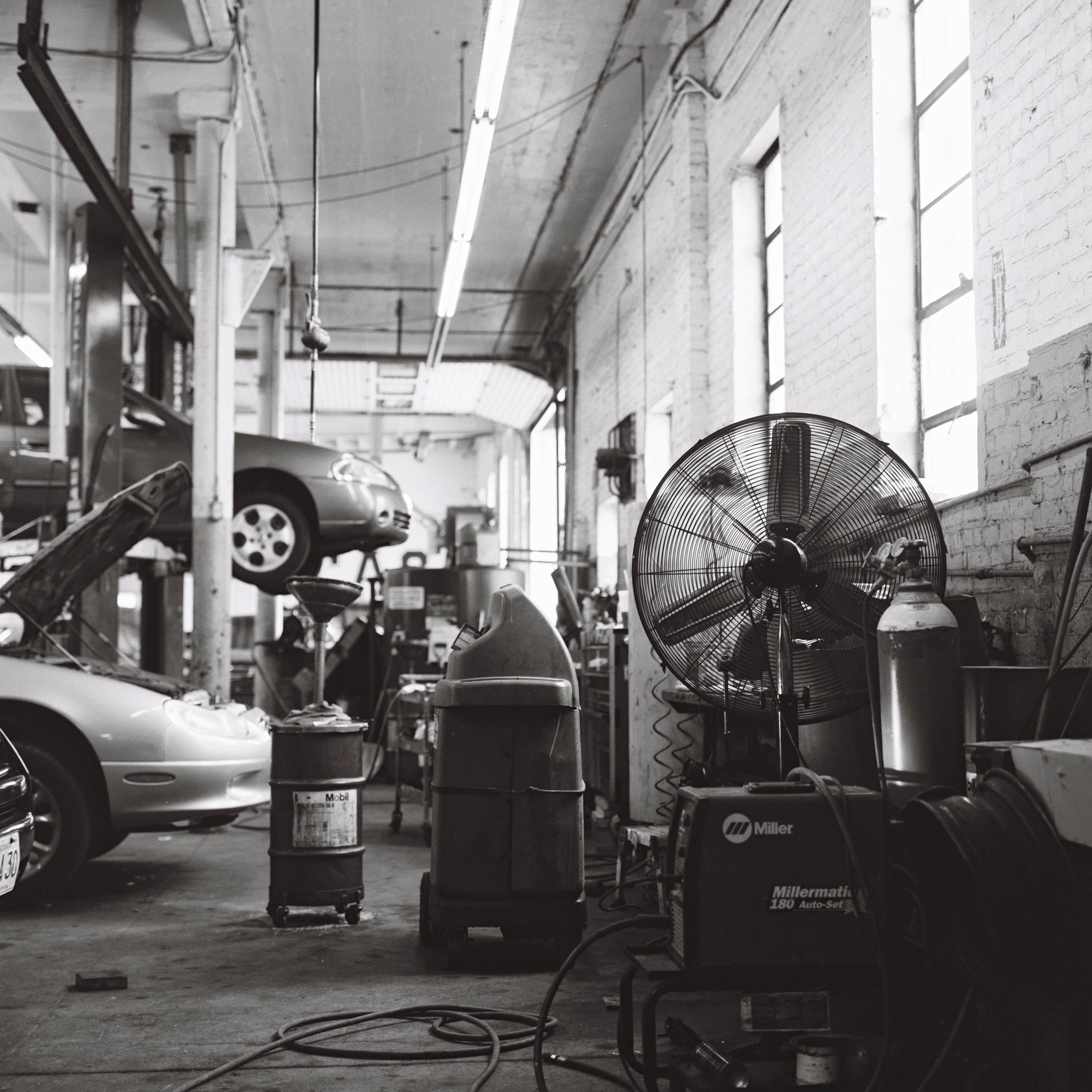

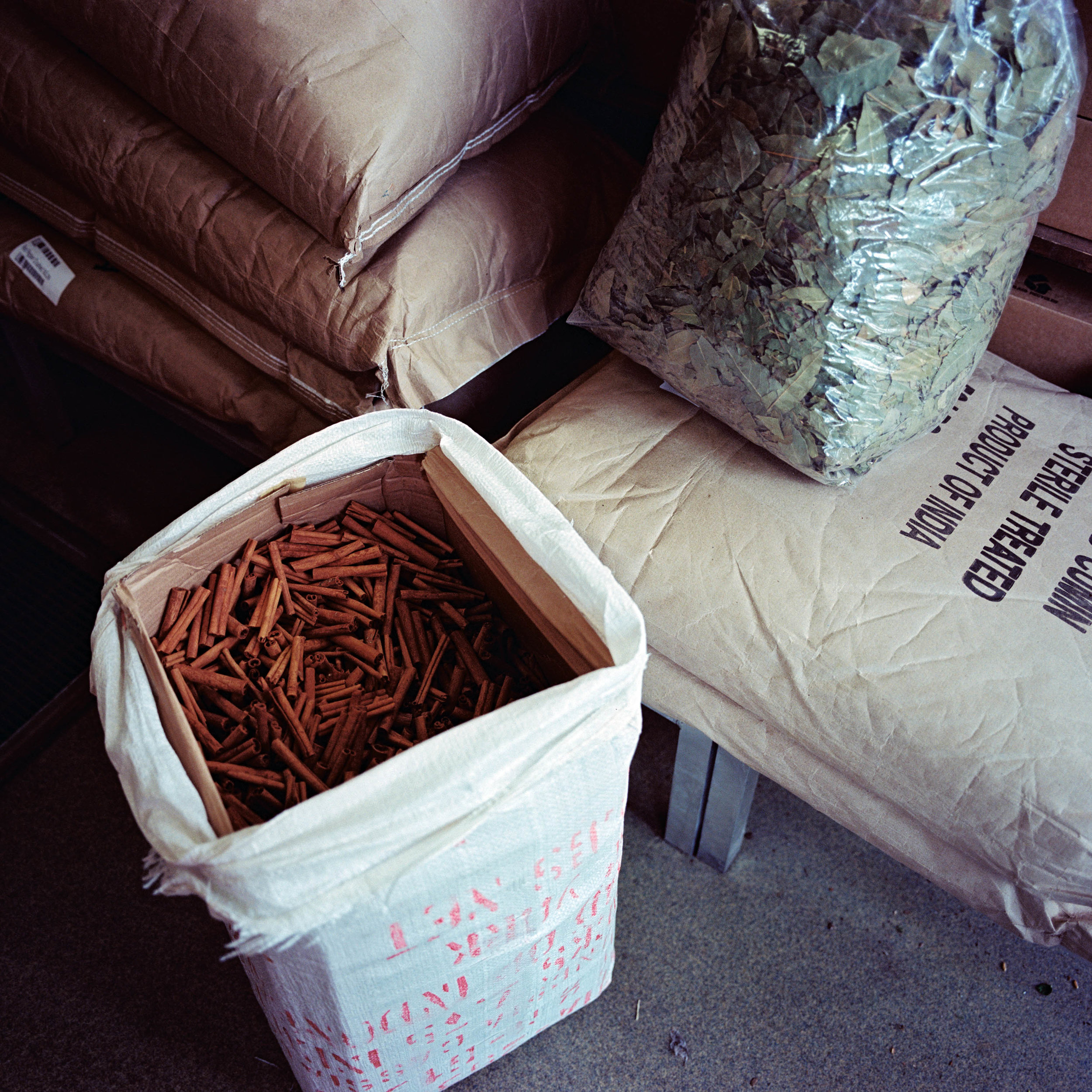
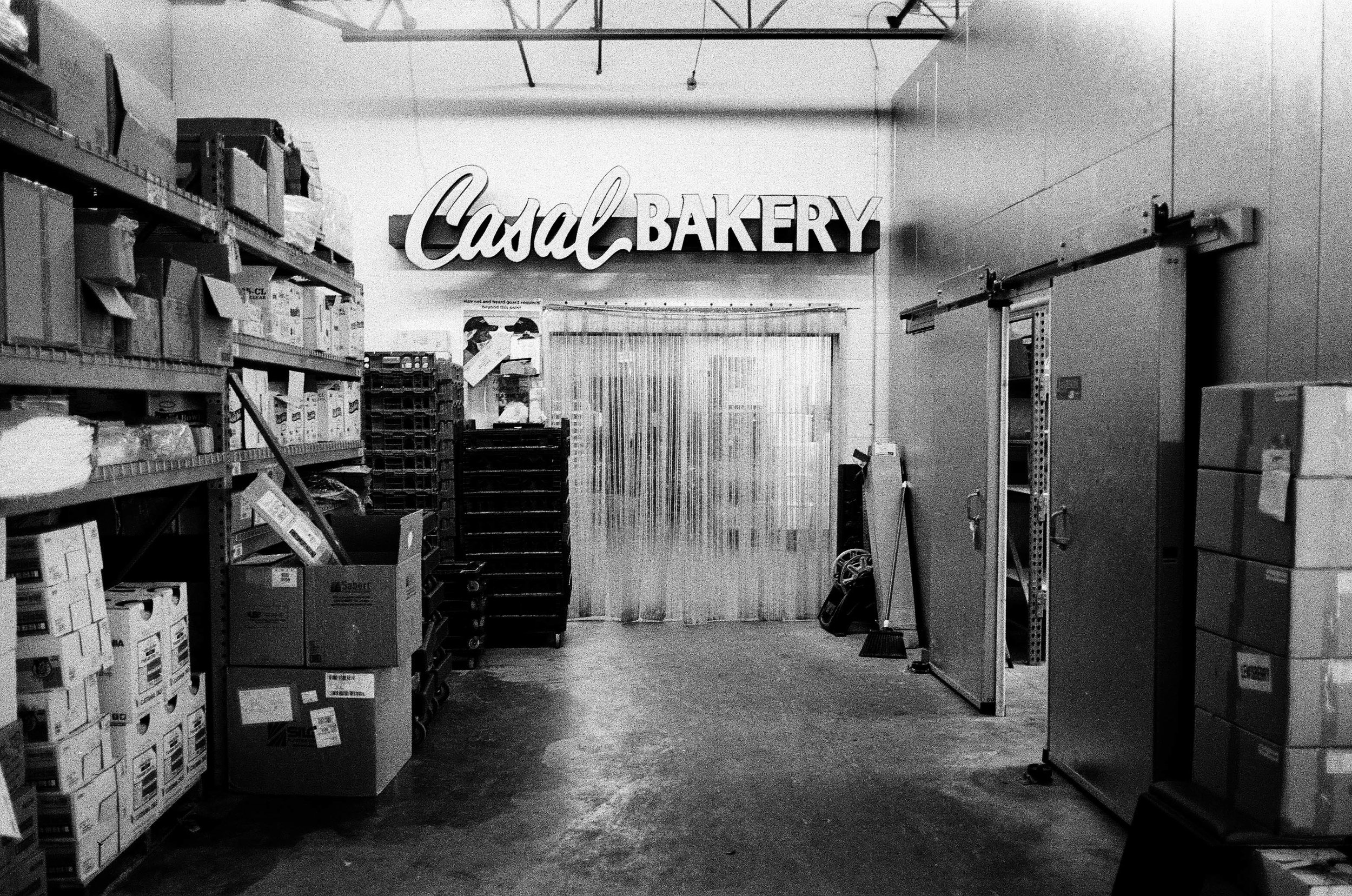



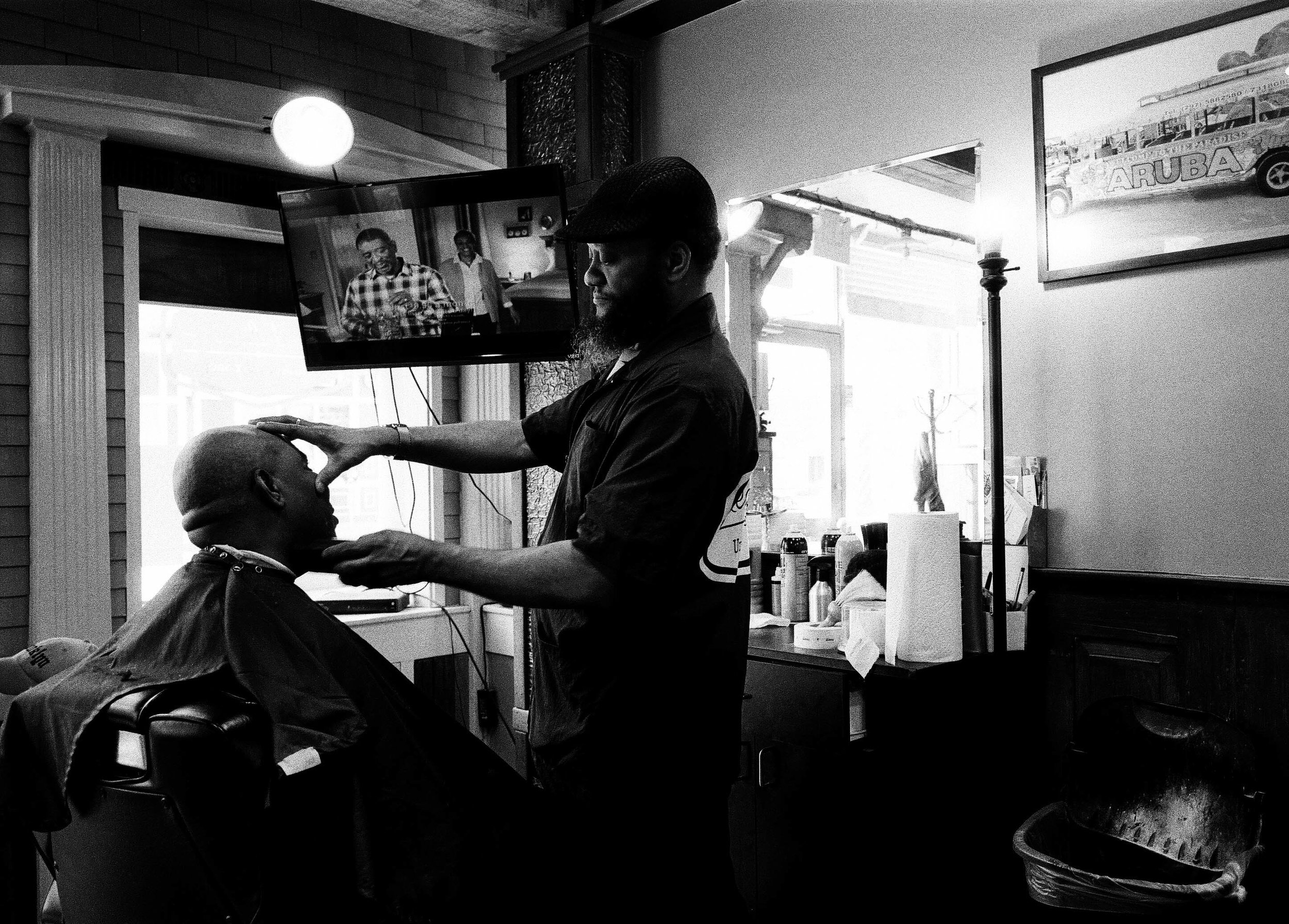
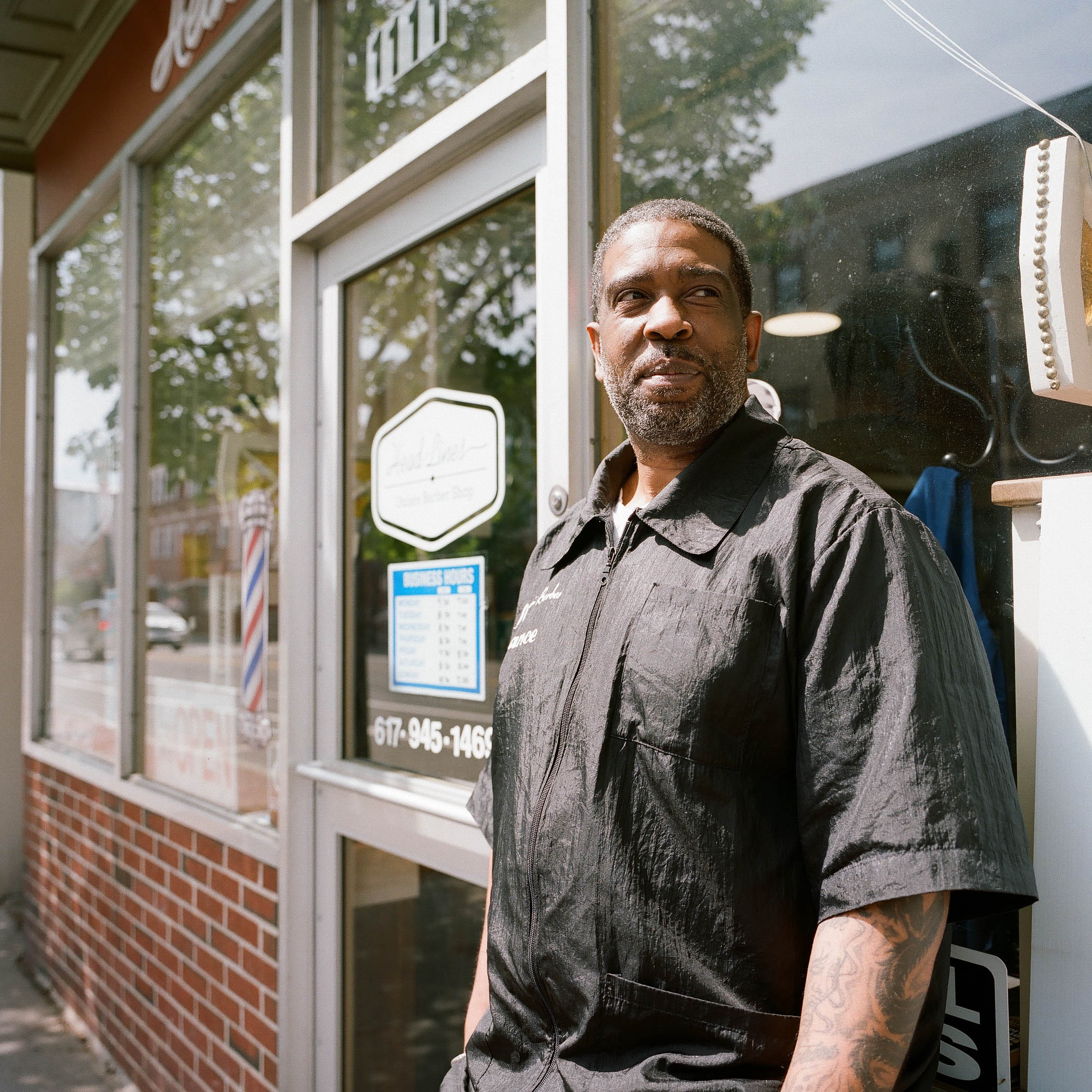
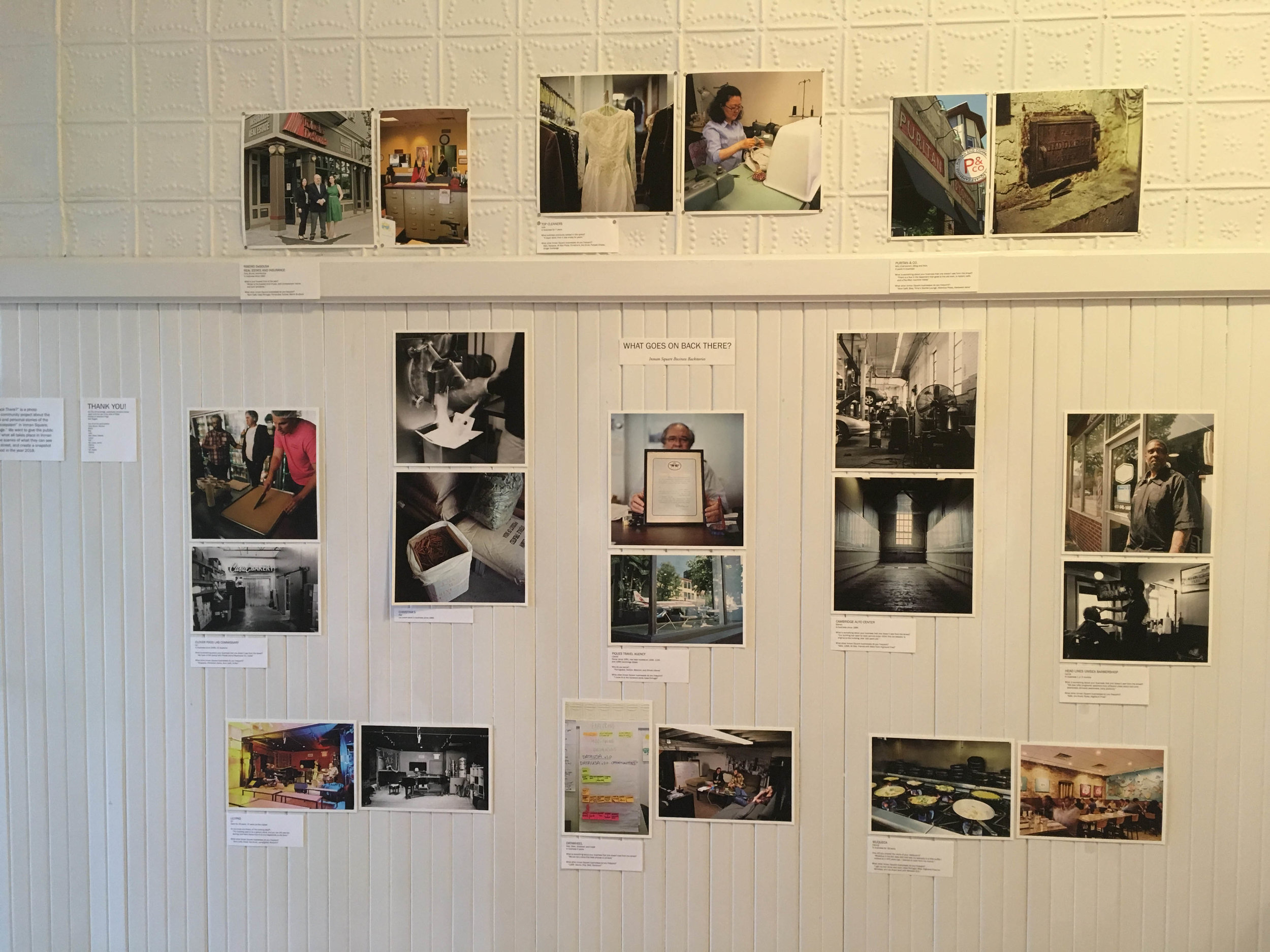

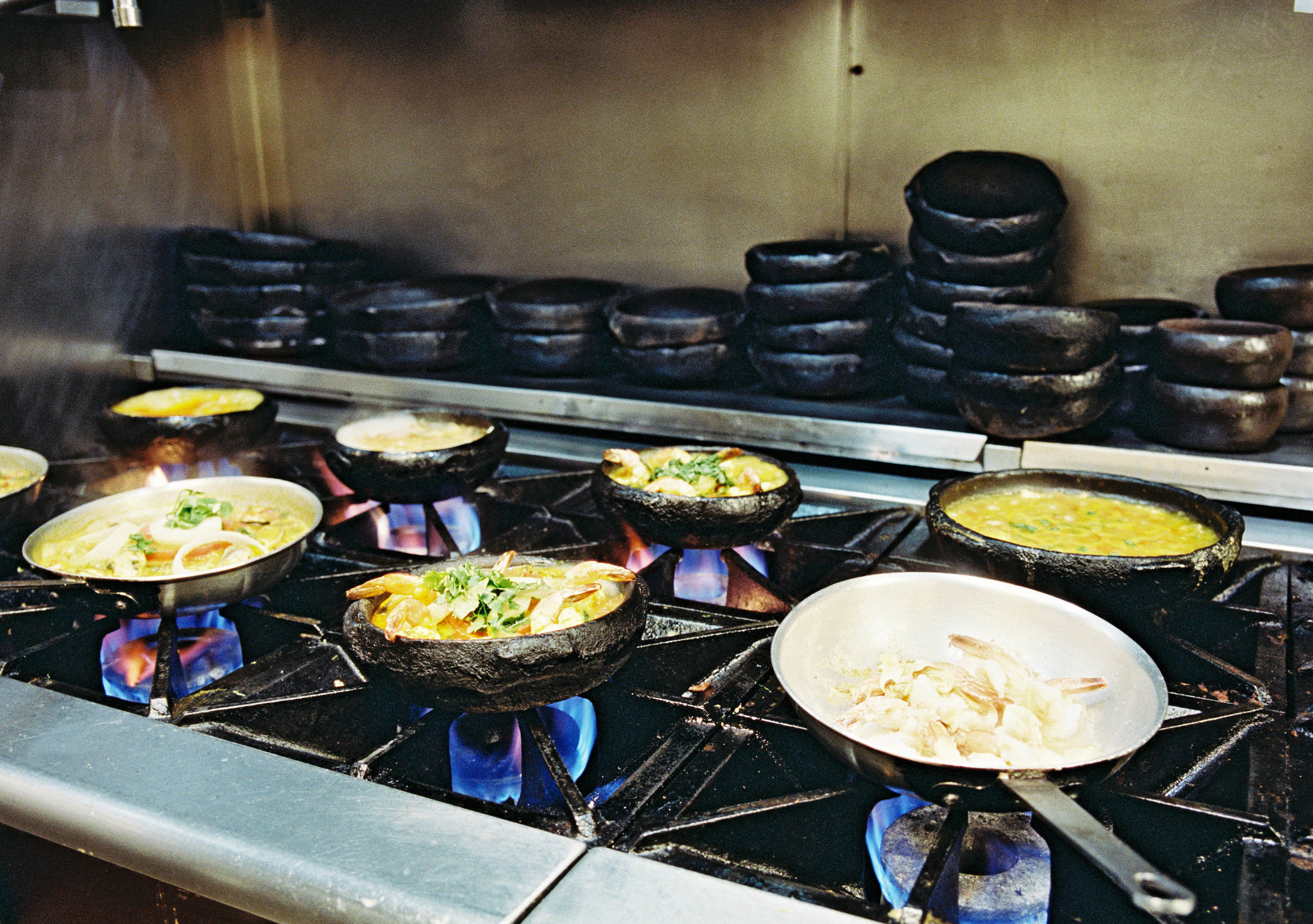
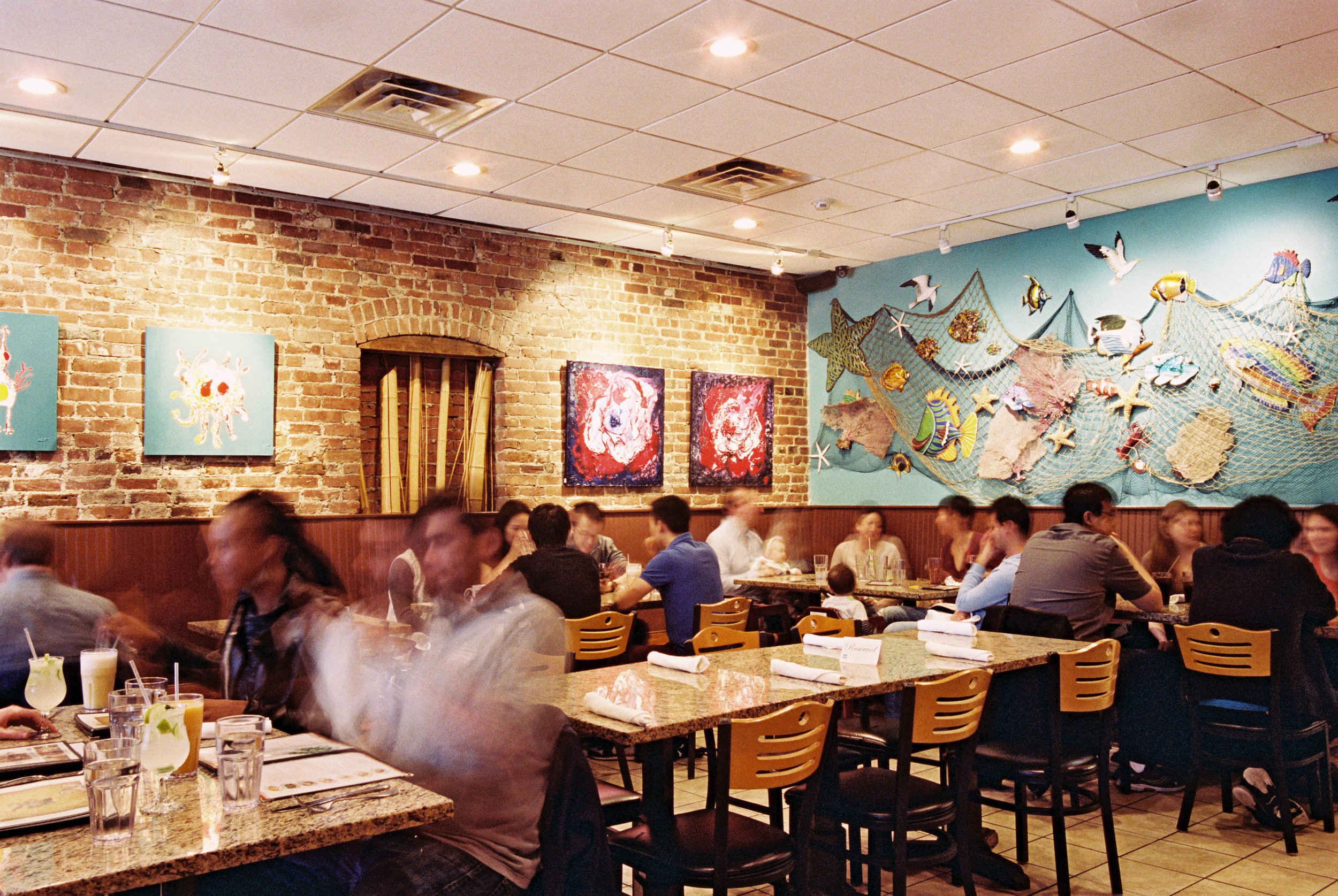
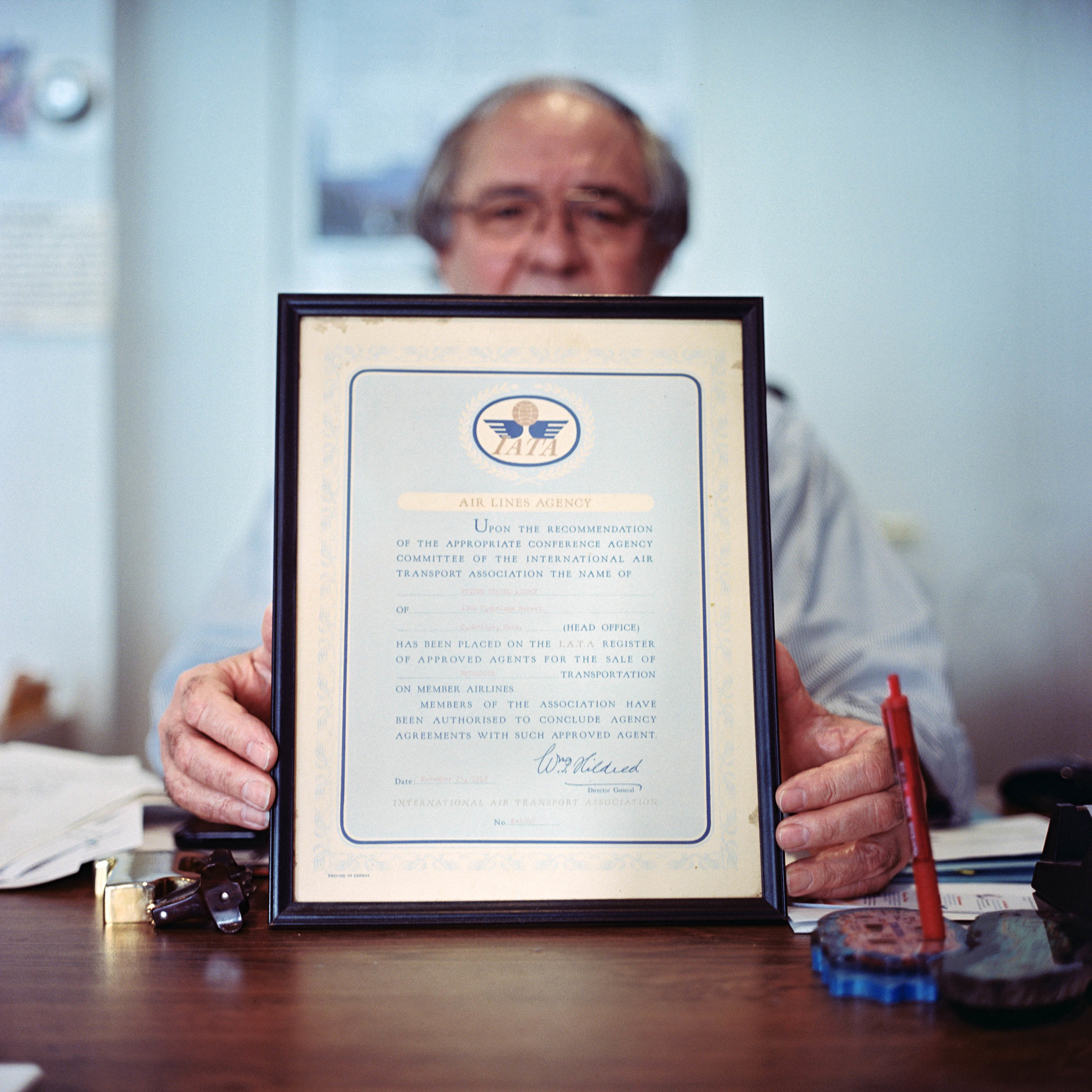
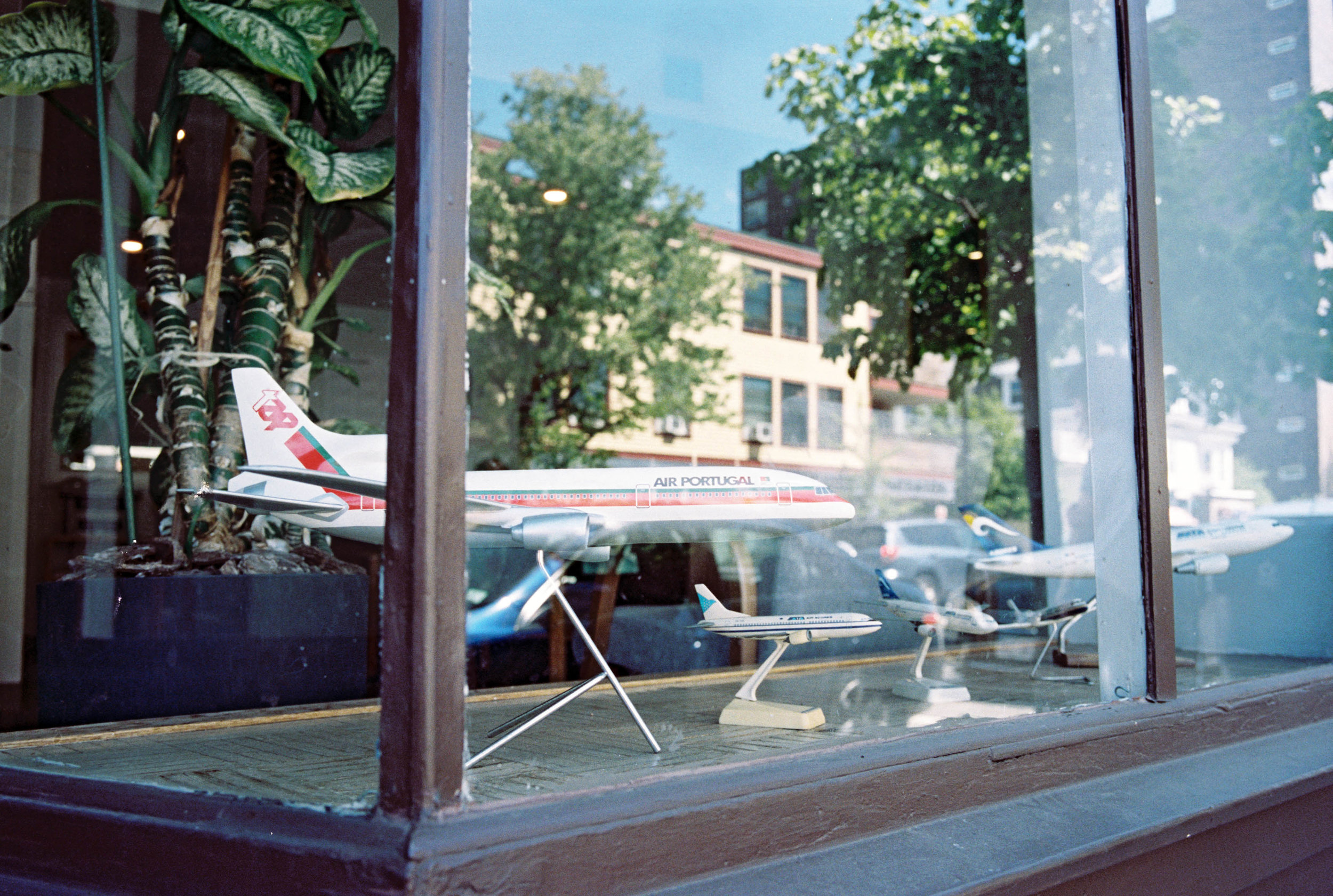
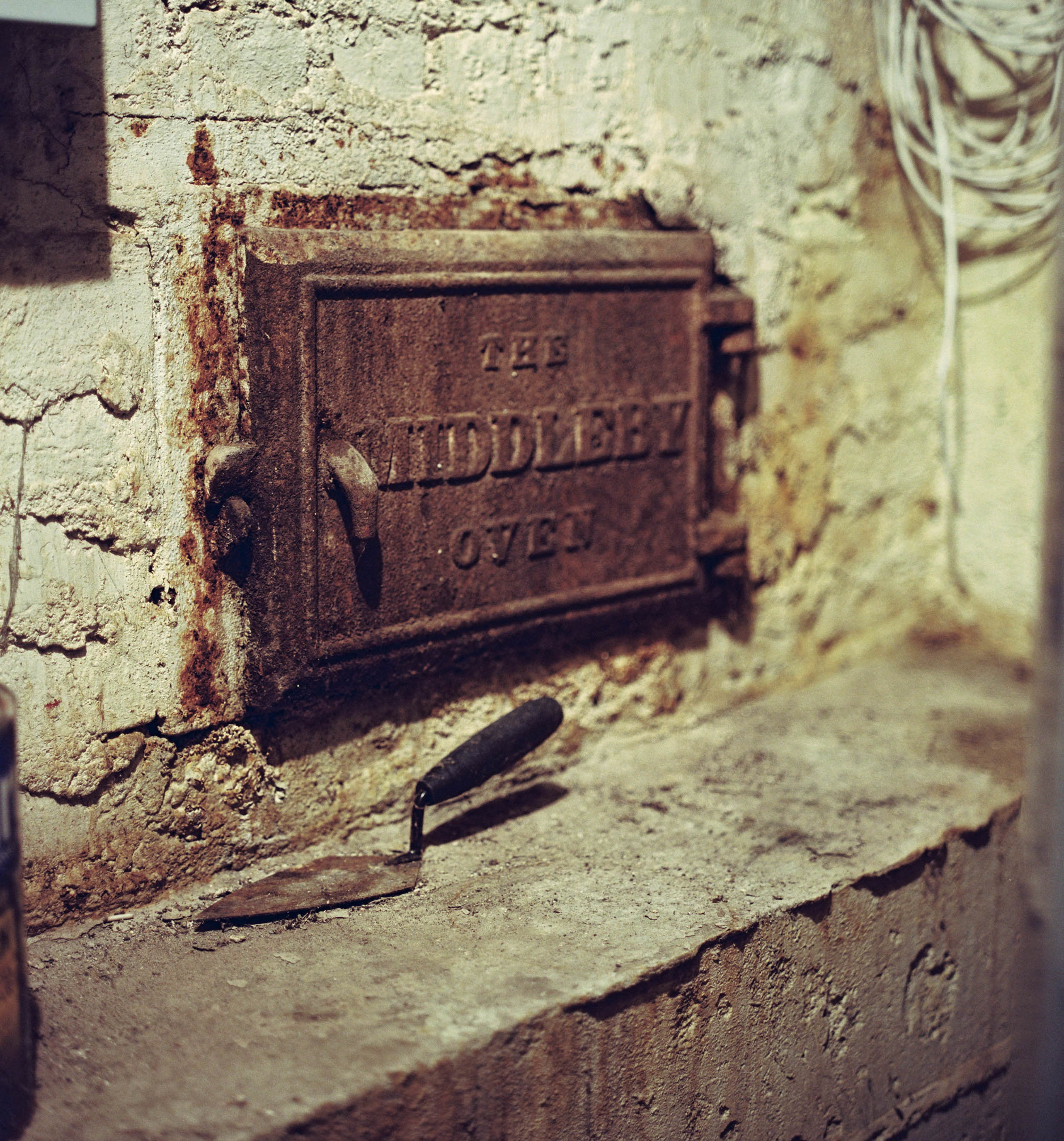

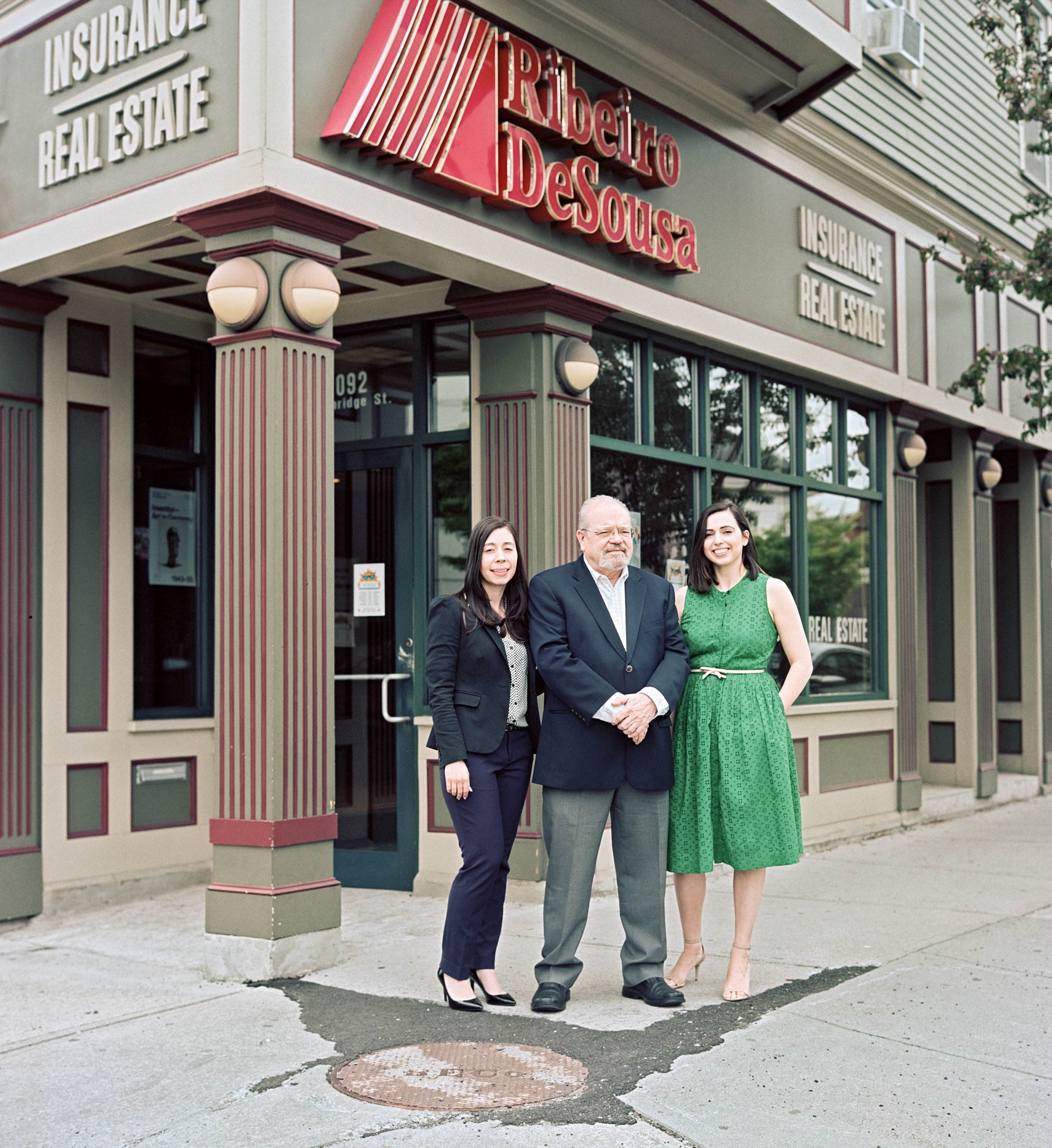
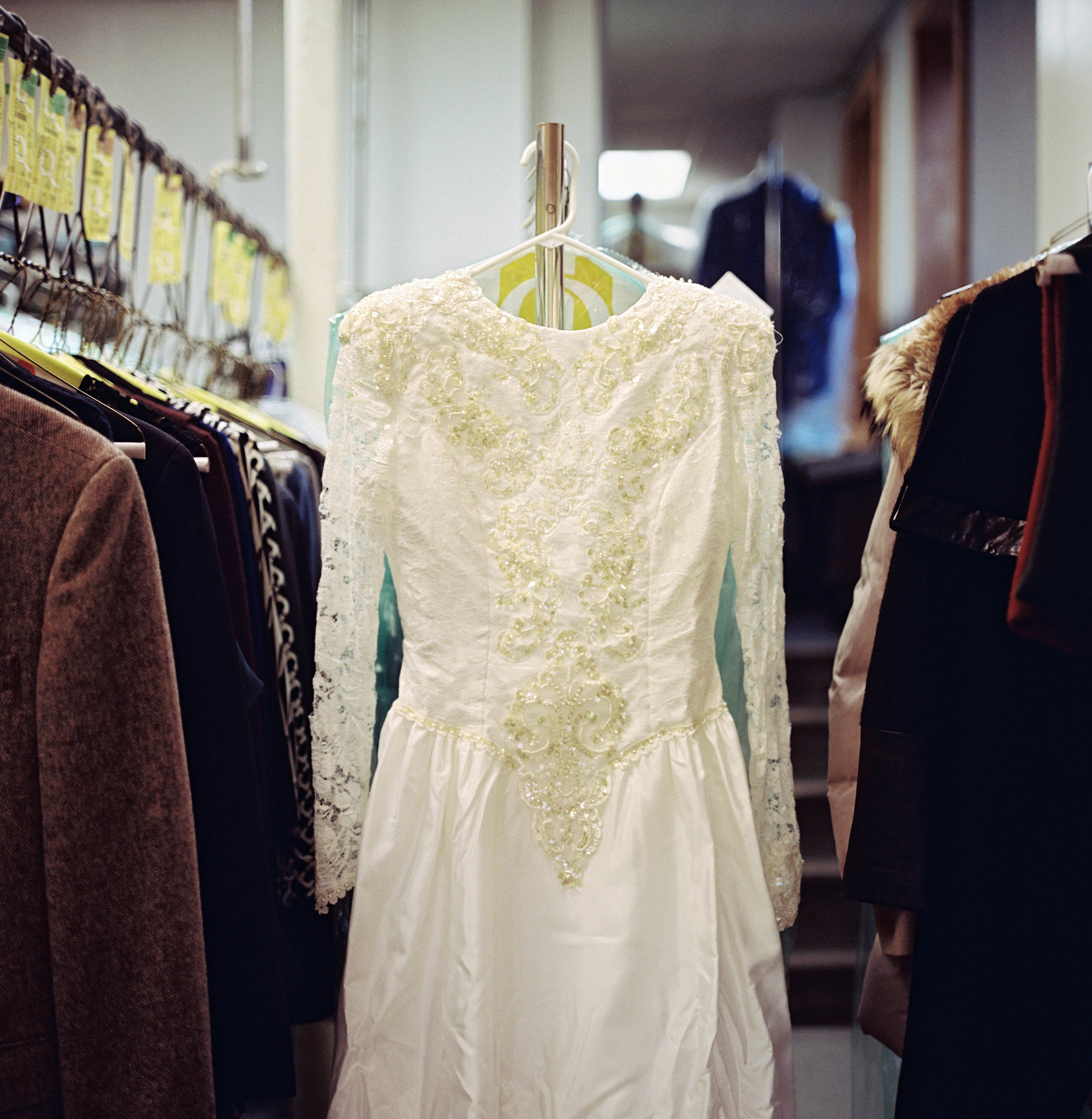
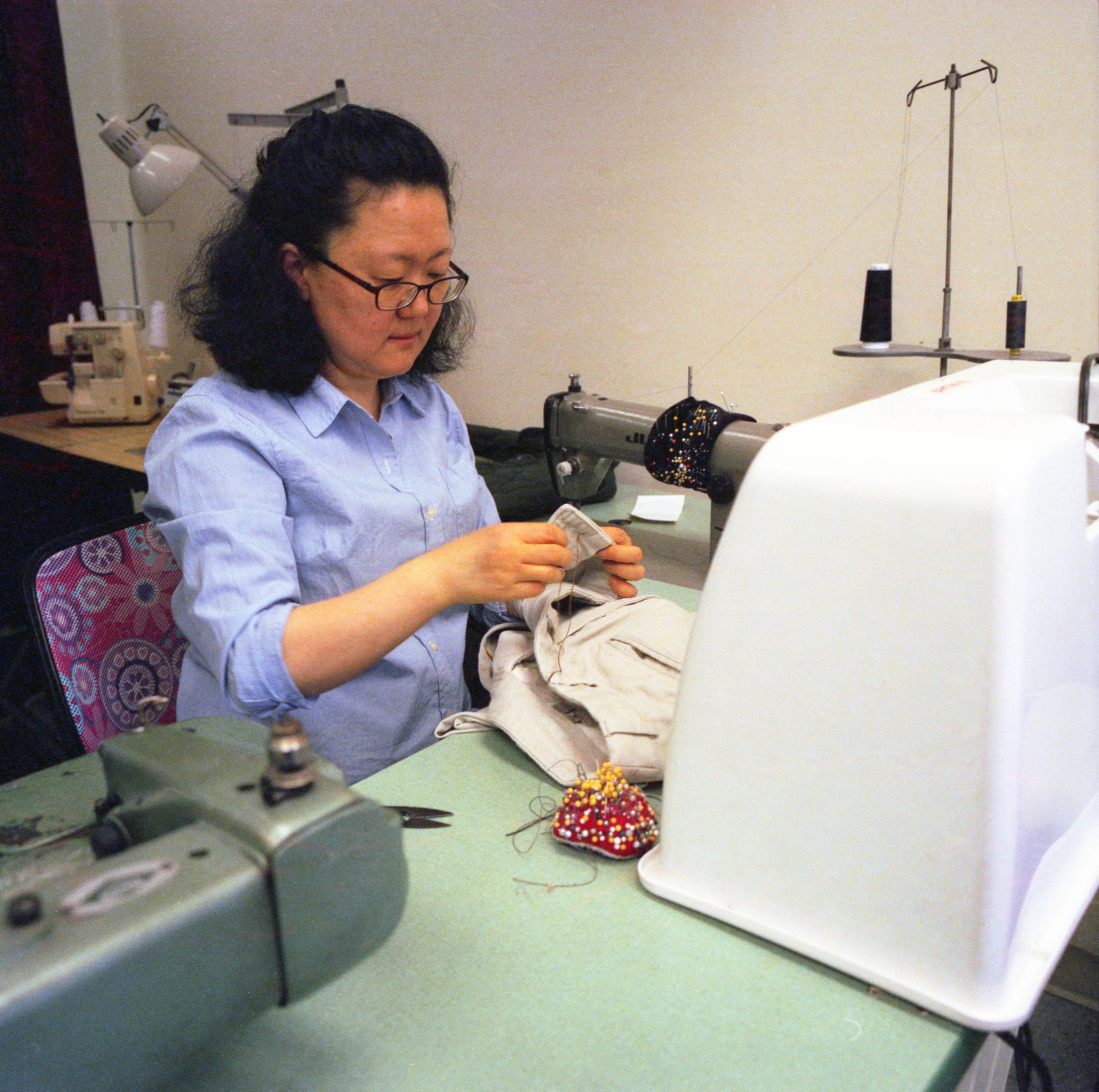
On Our Sidewalk
PARK(ing) Day is a annual open-source global event where citizens, artists and activists collaborate to temporarily transform metered parking spaces into “PARK(ing)” spaces: temporary public places. The project began in 2005 when Rebar, a San Francisco art and design studio, converted a single metered parking space into a temporary public park in downtown San Francisco.
Practice Space first participated in 2016 while our space was still under renovation, this was our first event in Inman Square. Every year since then we roll out the grass sod and celebrate our birthday and bringing our practice out into the public.
Inman Eats is an opportunity to get a taste of the local fare in and near East Cambridge and Inman Square and is produced by The East Cambridge Business Association. Practice Space participates by bringing the culinary history of our neighborhood to the street. As the neighborhood where Legal Seafood first started and where Julia Child once lived, we have many stories to tell.
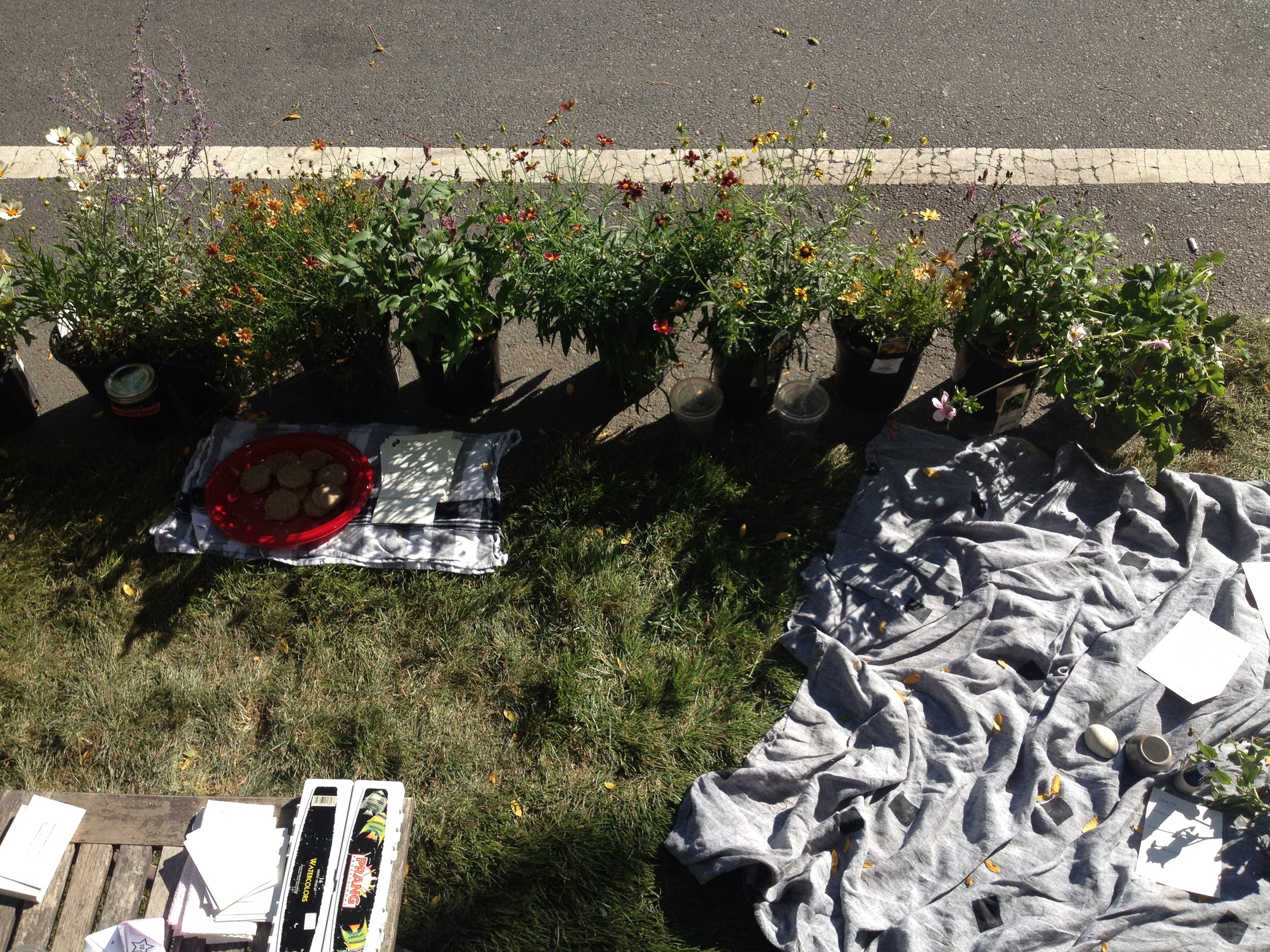
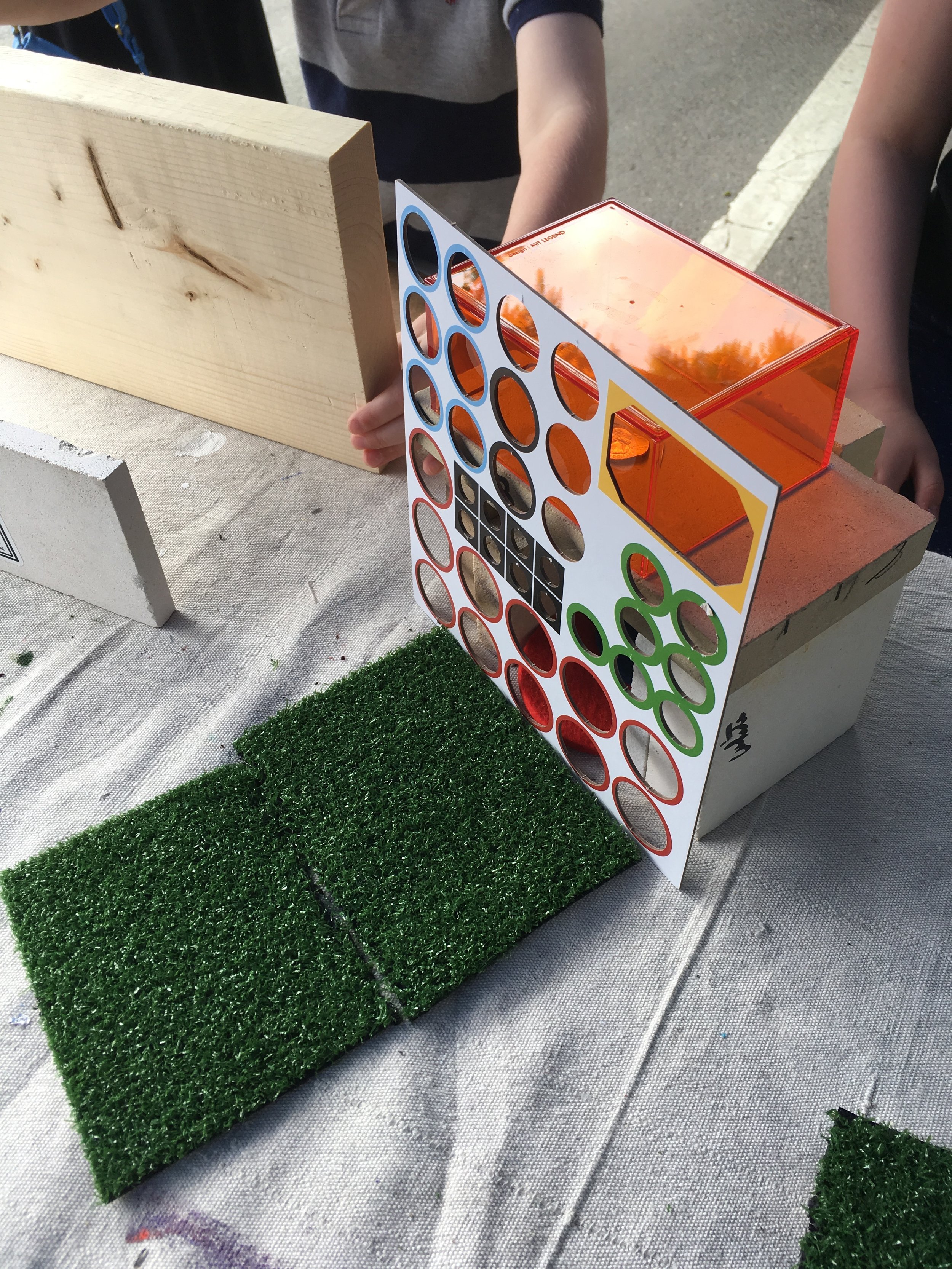
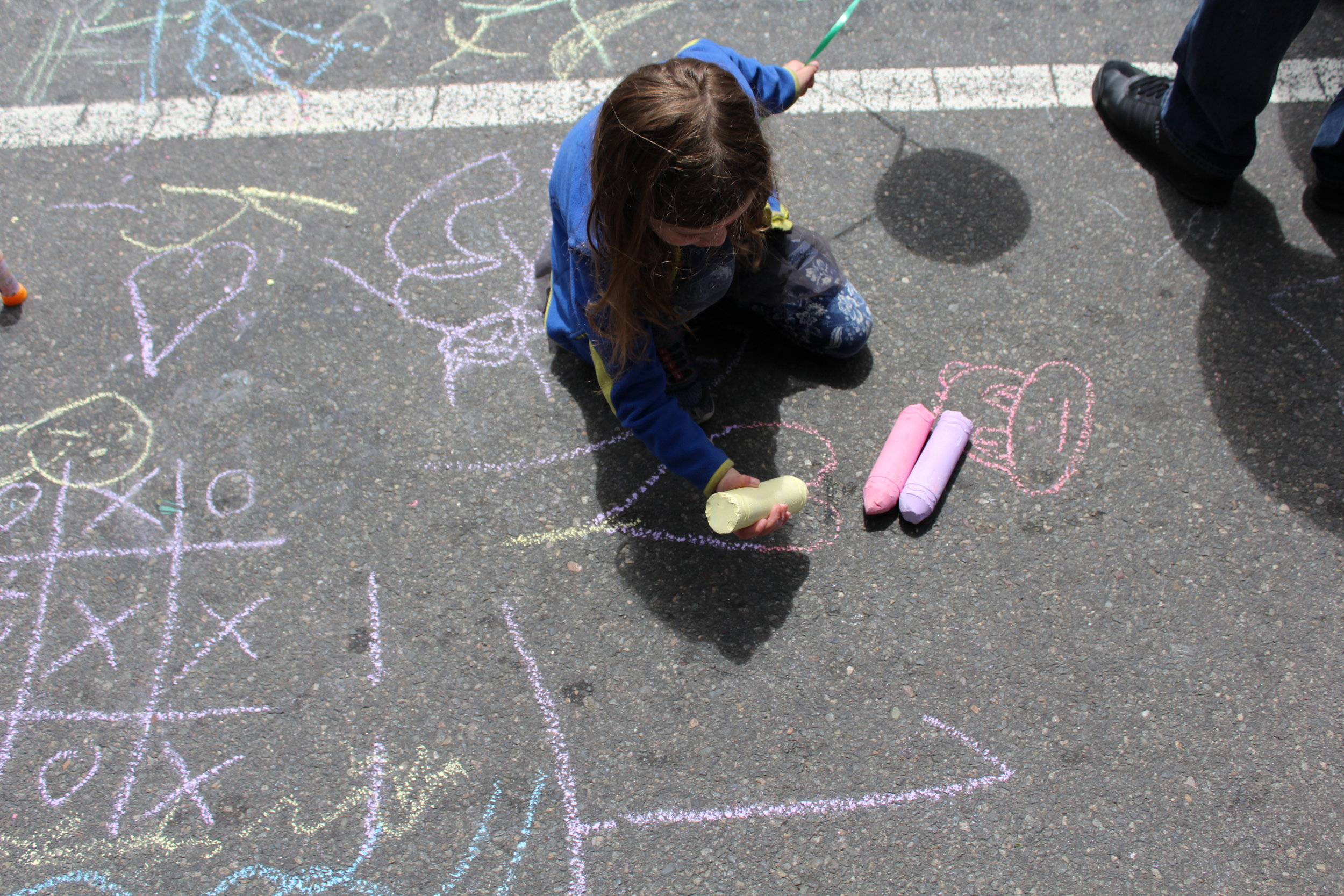
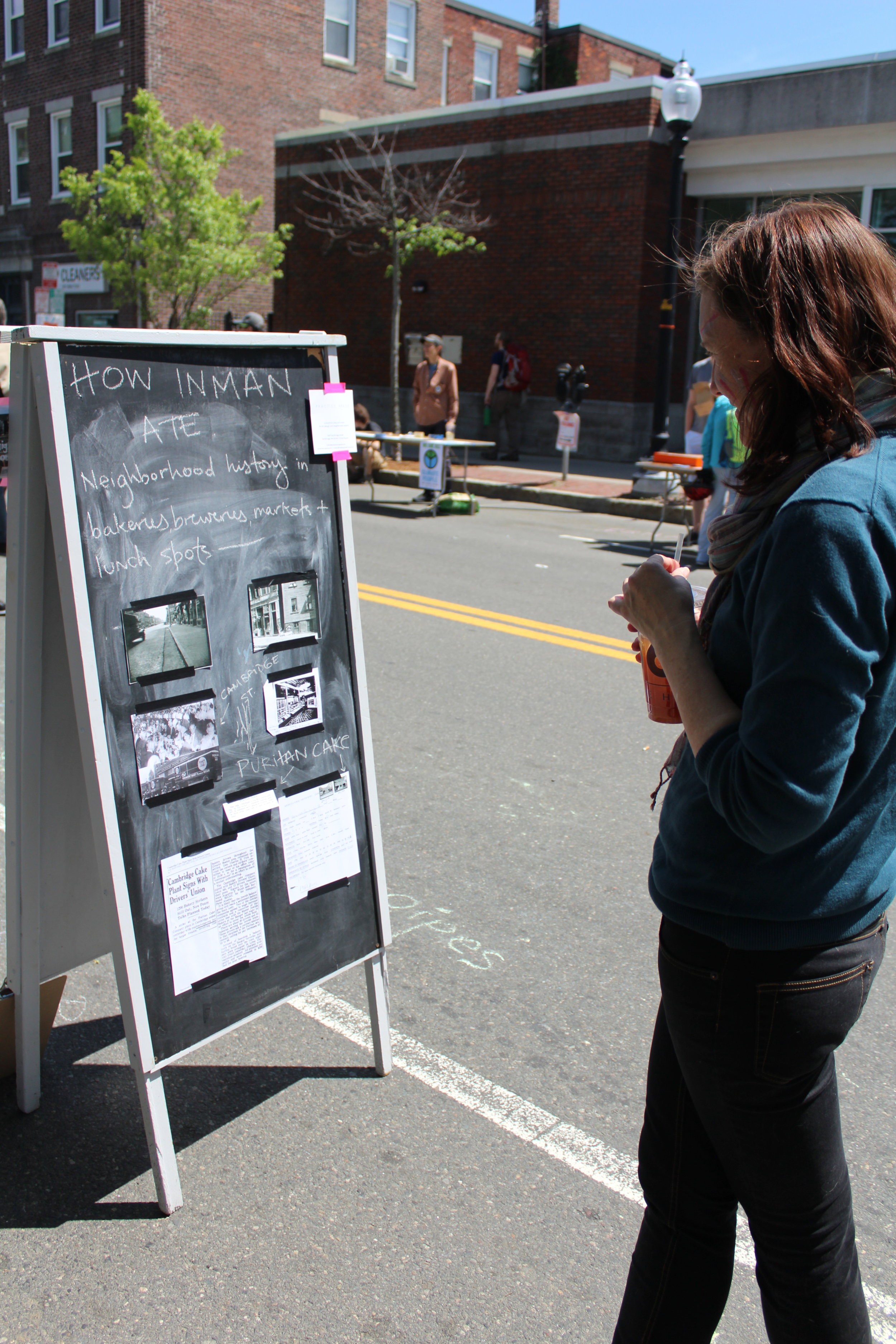
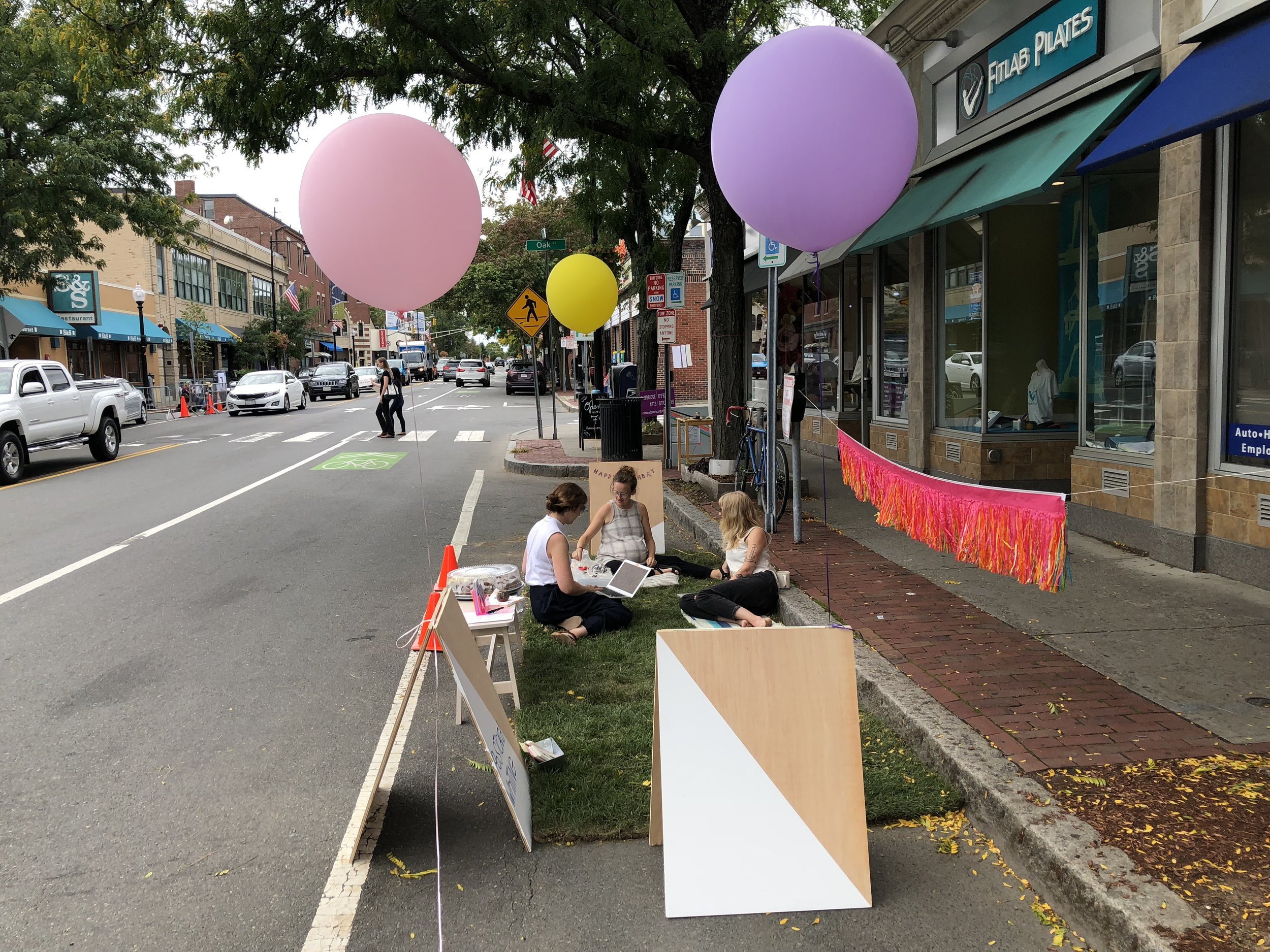
Just-A-Start
In 2017 Practice Space Design Studio was hired by Just-A-Start Corporation to lead the celebration and commemoration of their 50th anniversary year - 2018. Over the course of the year we designed and produced 3 main events to bring together different members of the JAS community.
A Taste of Home took place in March and was centered around food. Recipes were collected from the JAS community and a selection were prepared for and evening party highlighting a diverse swath of cultures.
In August we collaborated with Lamplighter Brewing Co. to release a custom beer called 1968. This created an opportunity for JAS to partner with its Cambridge neighbors. It also helped the organization to connect with a new audience, and revived the style of beer being home-brewed 50 years ago.
To wrap up the year, we organized Play. Build. Pop-up! - an outdoor neighborhood festival highlighting JAS YouthBuild and its founding purpose of supporting young folks through education.
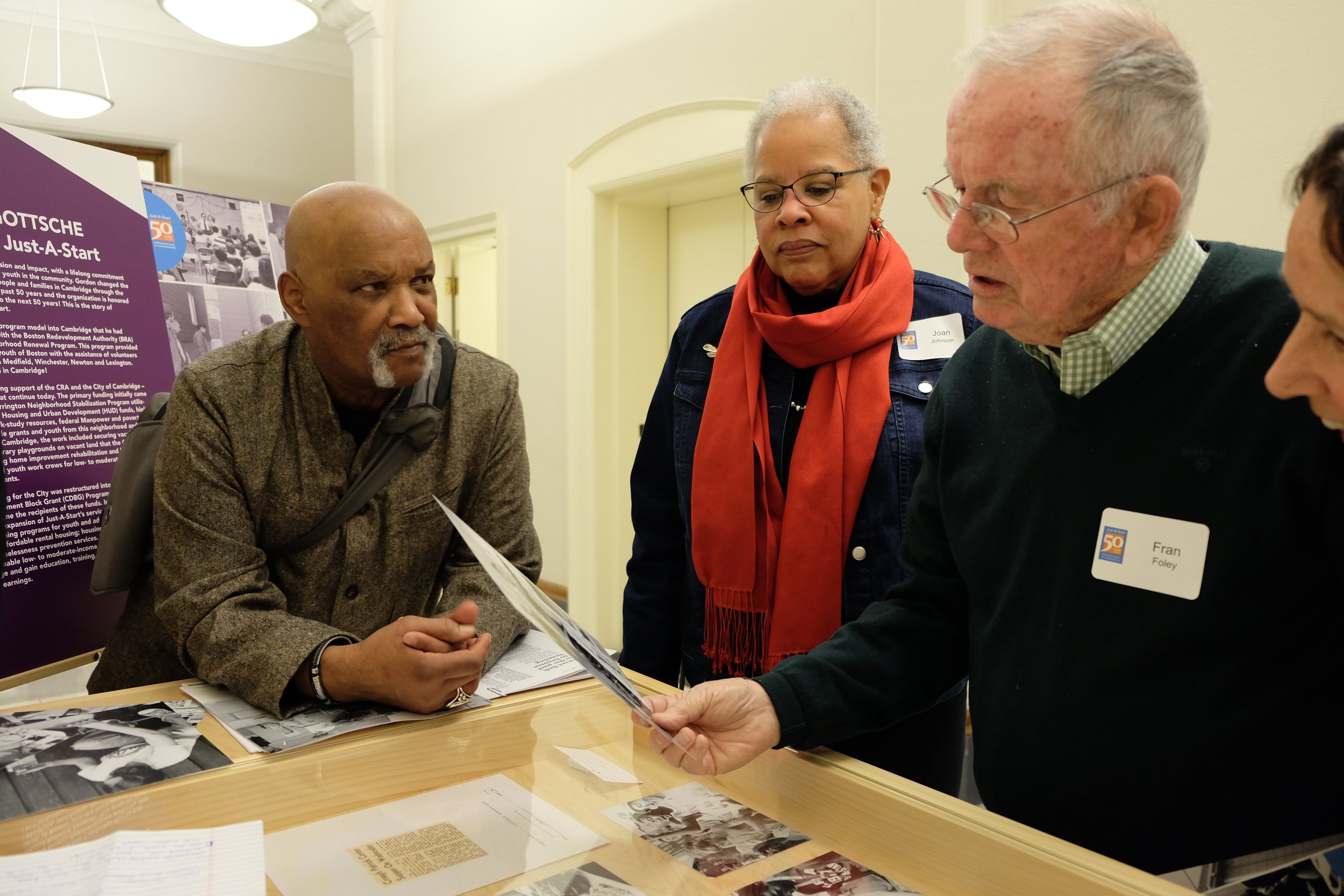


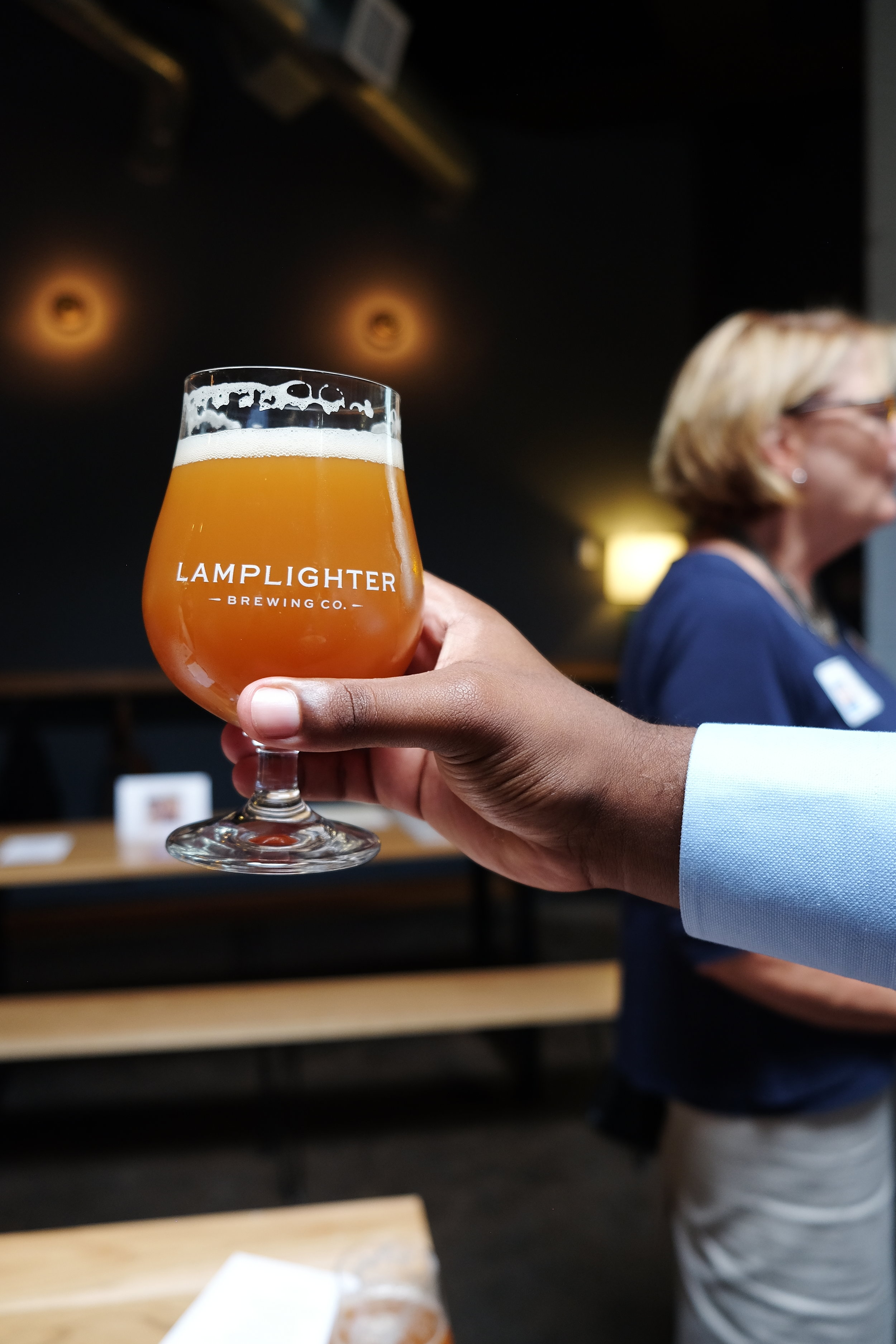
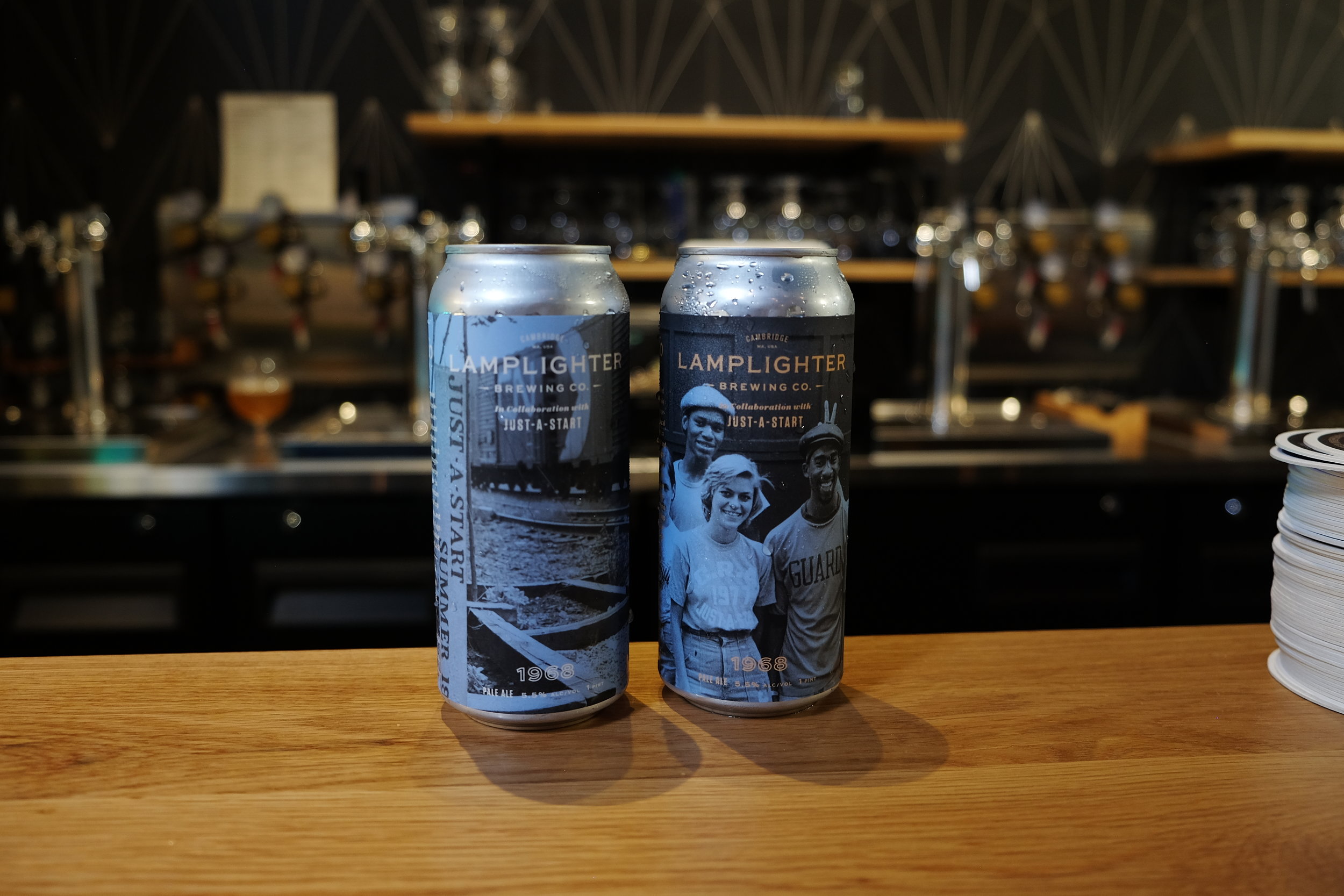
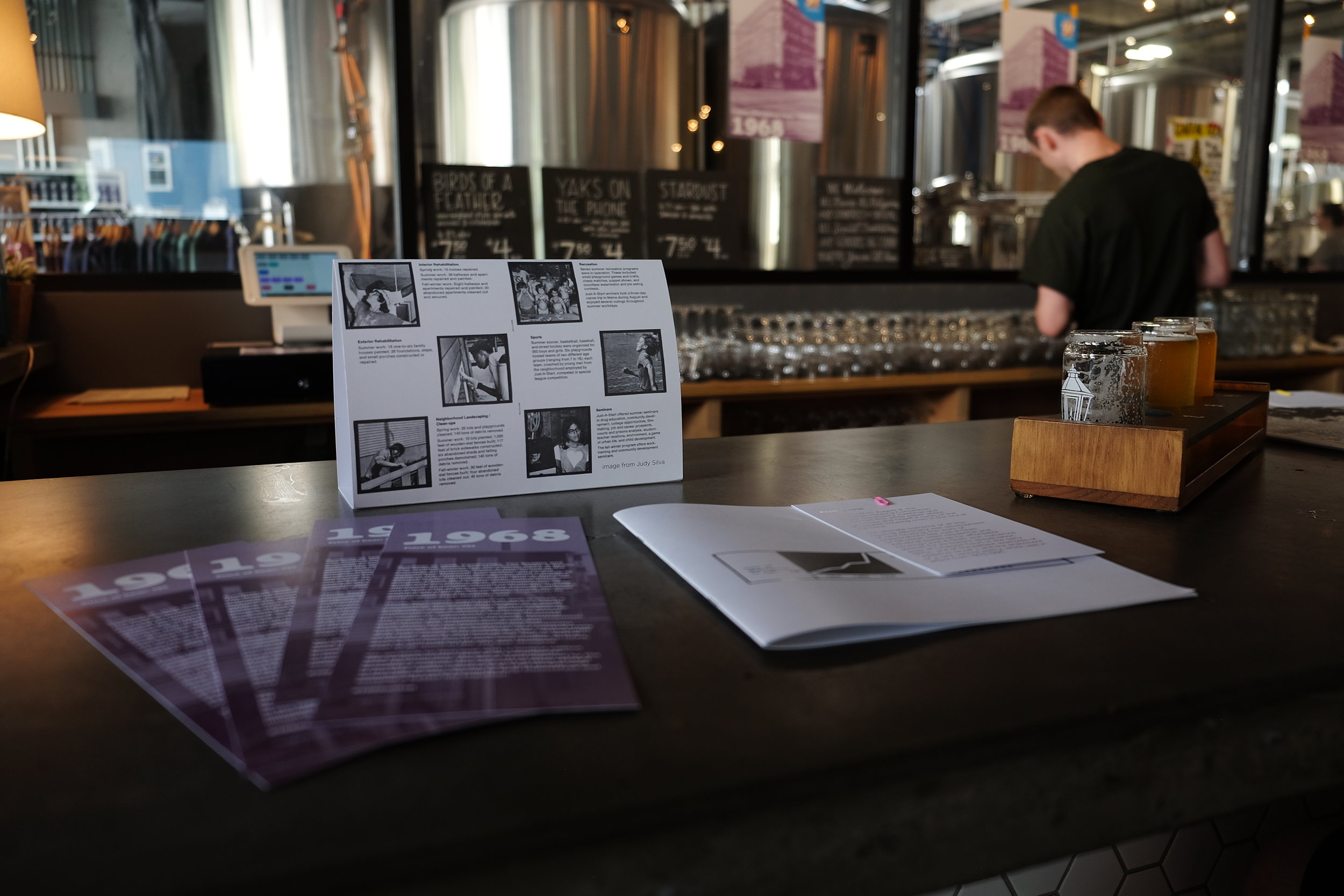


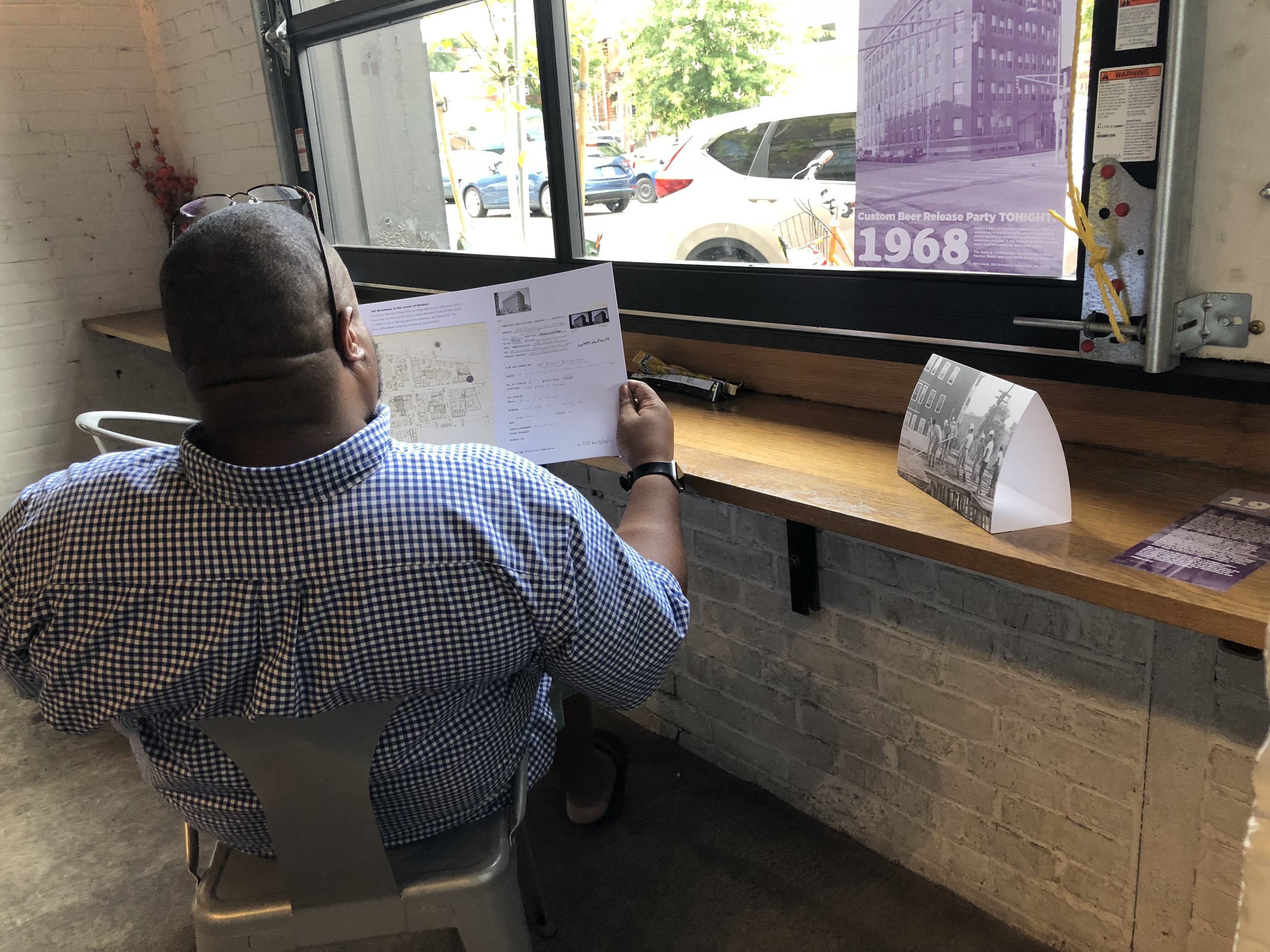

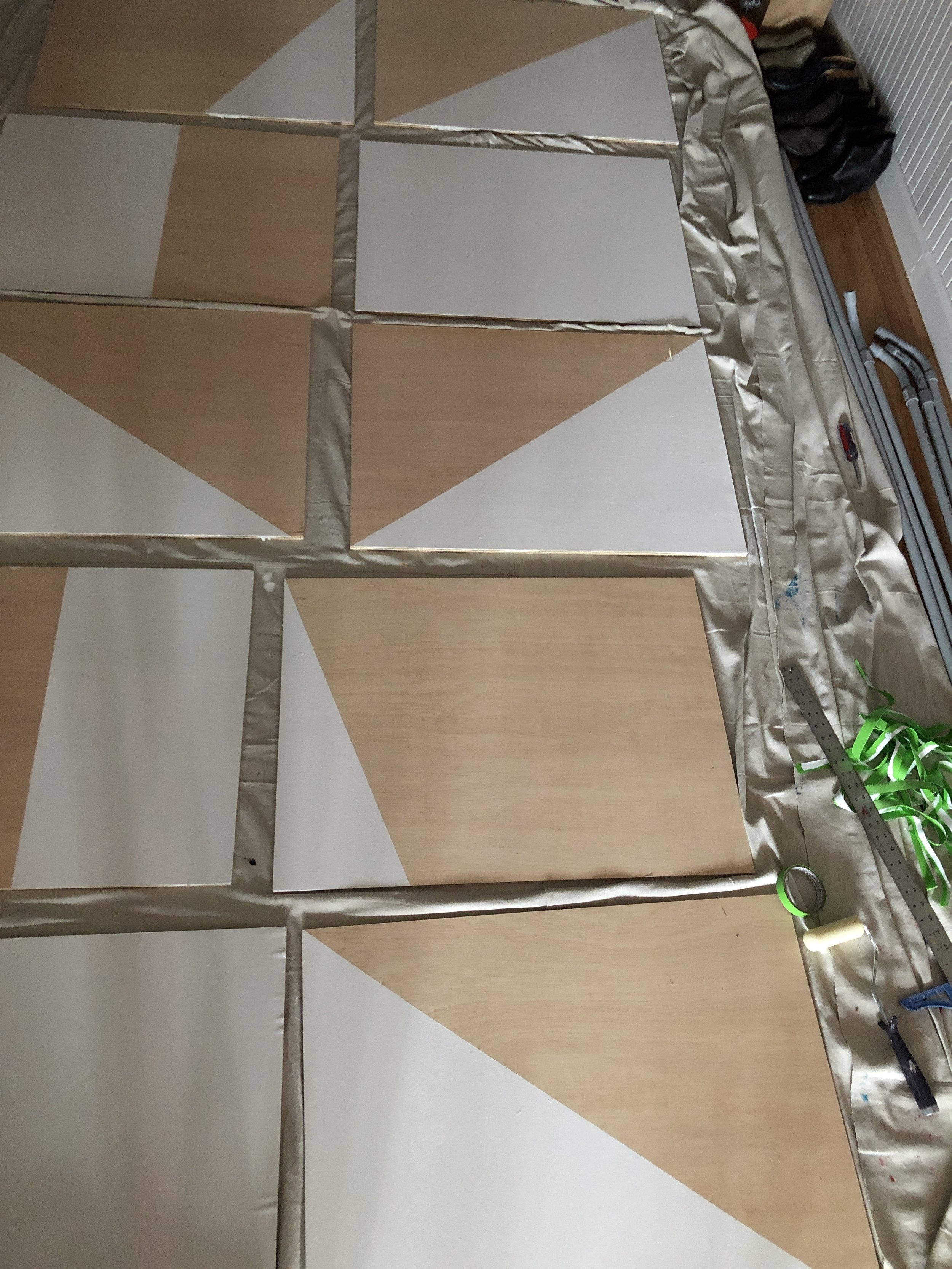

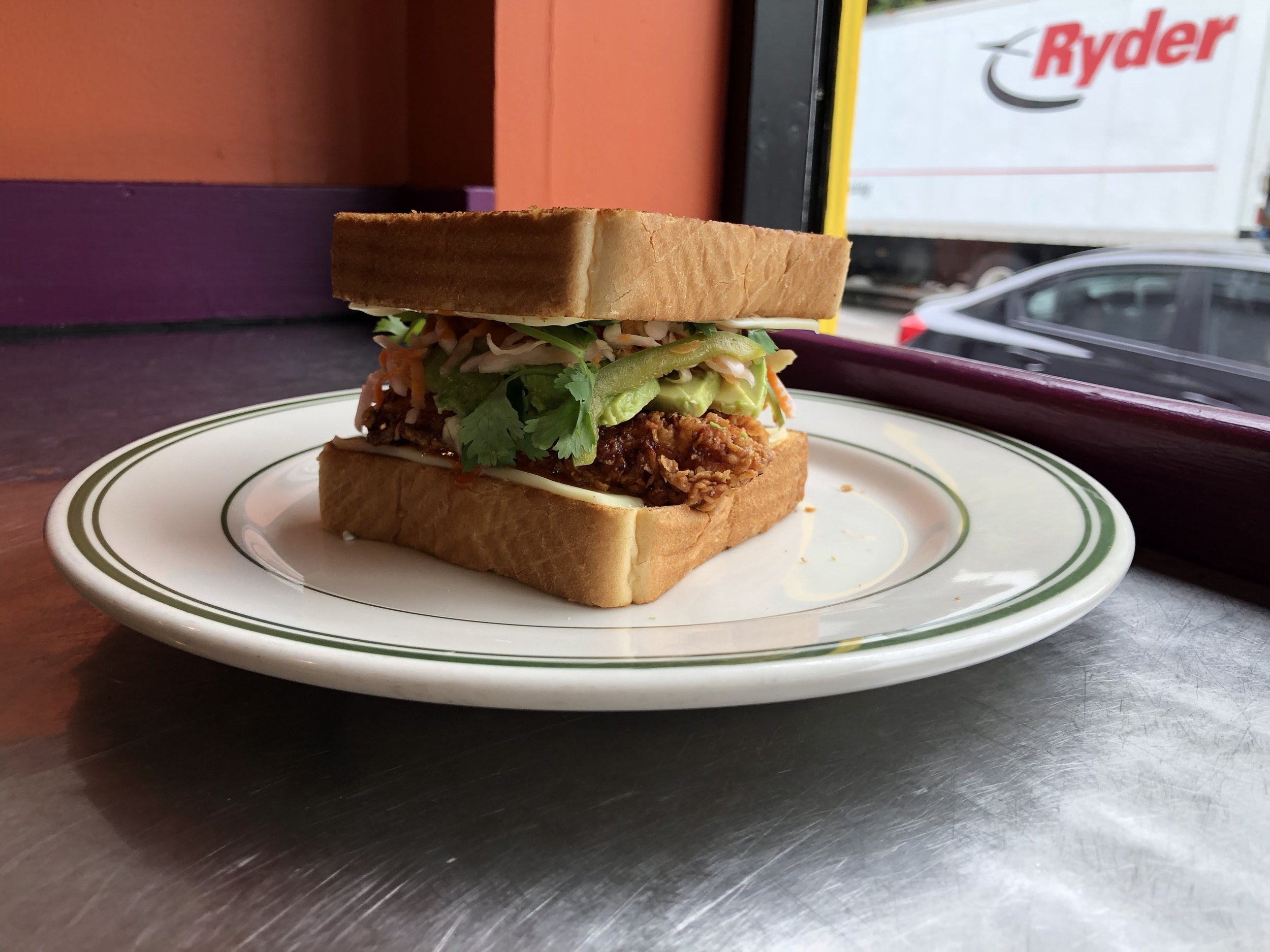
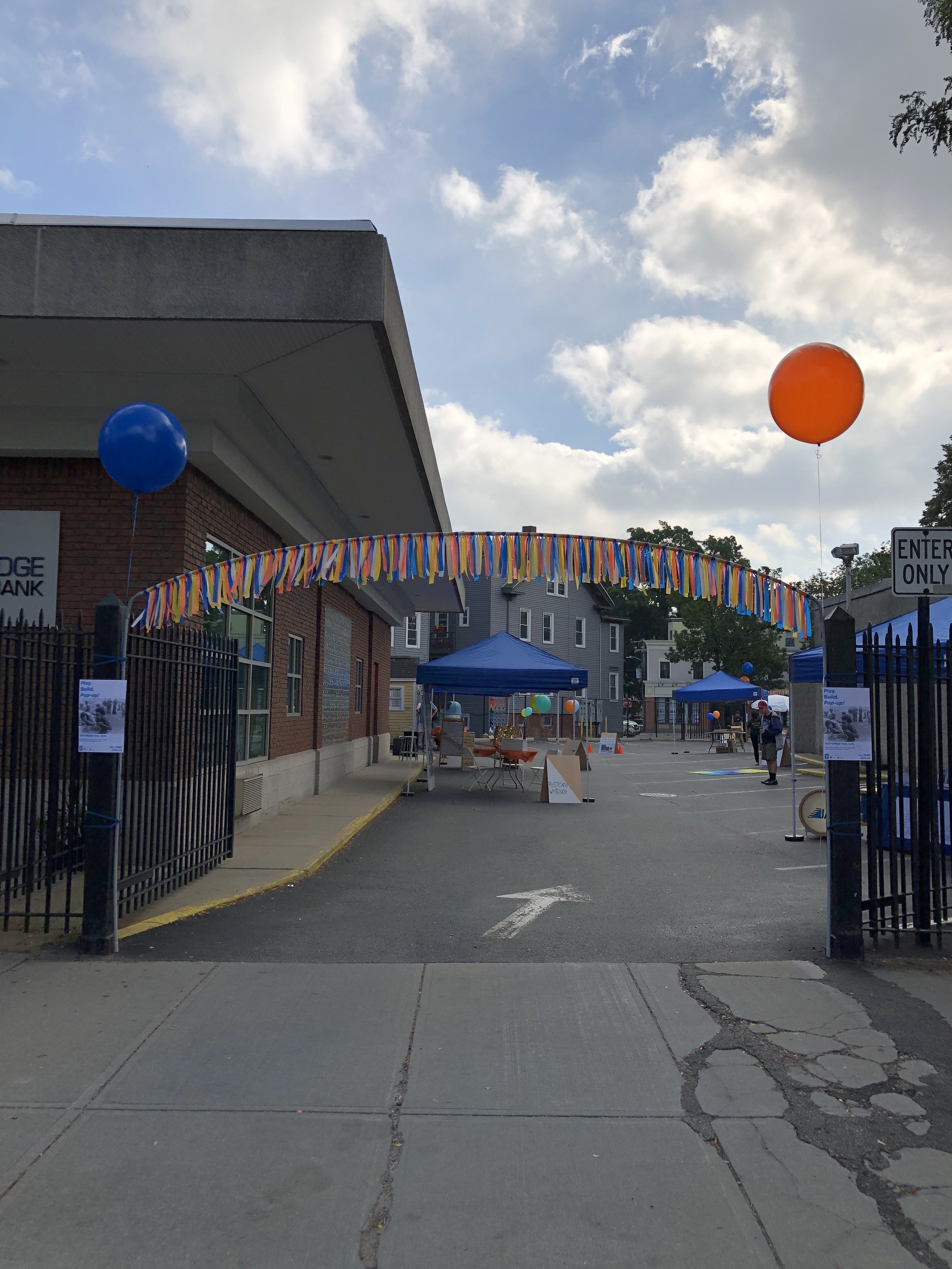
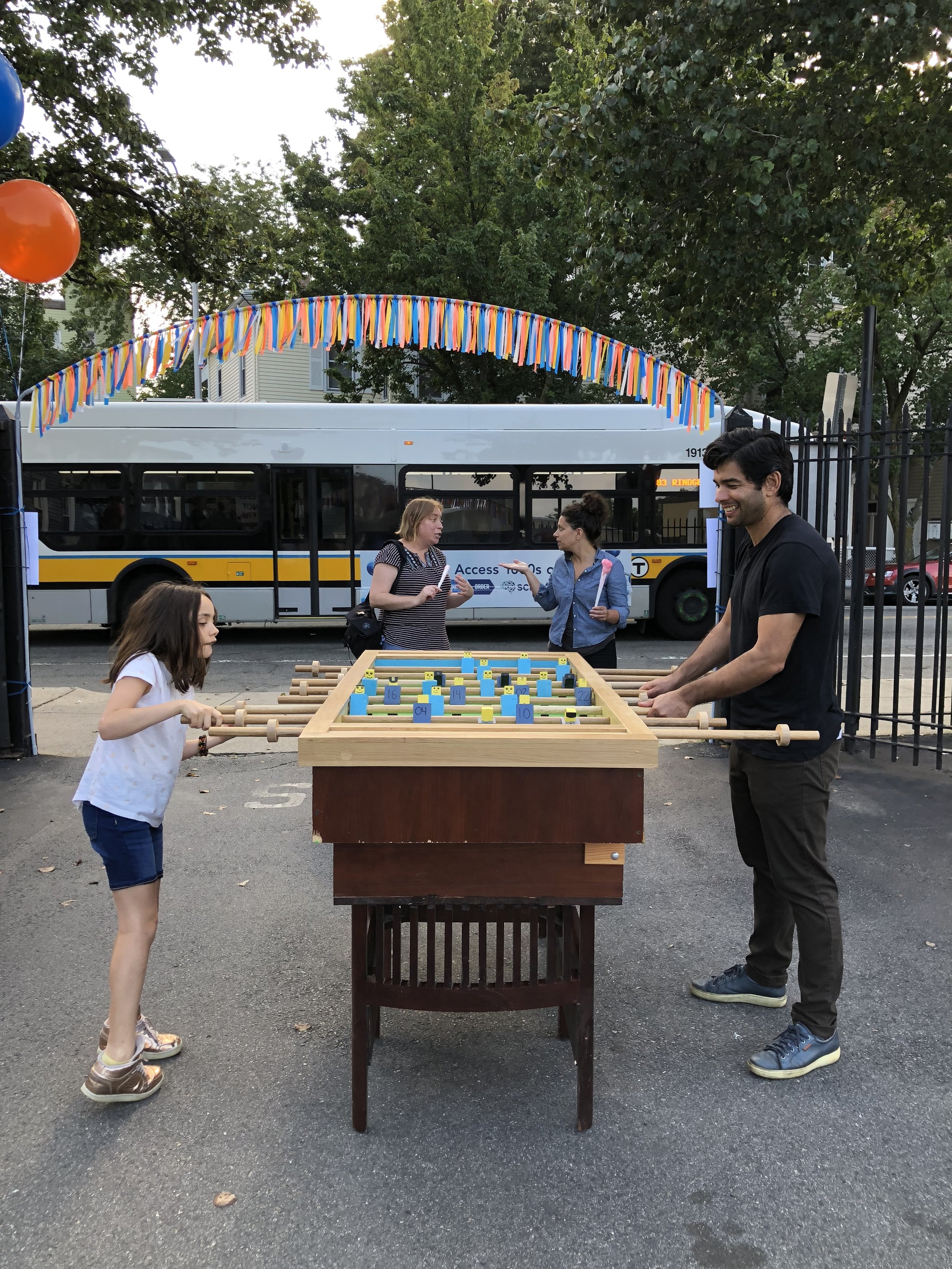
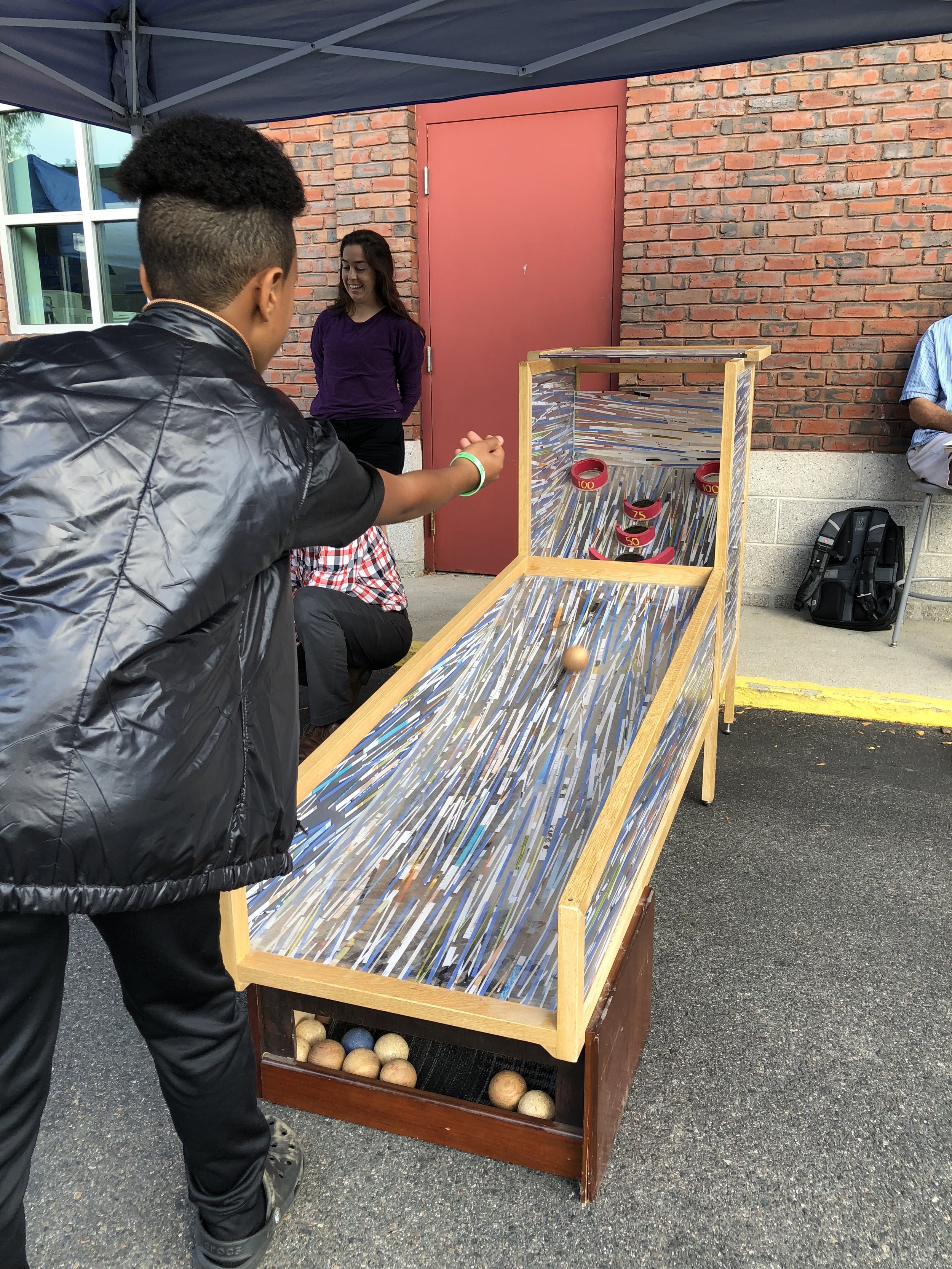
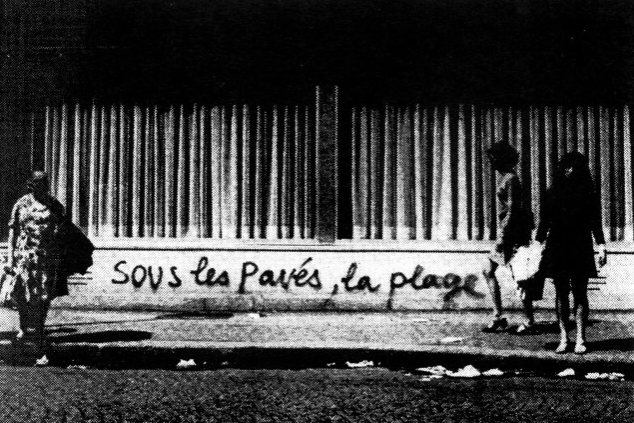
Slow Fashion Pop Ups
Practice Space carries clothing by established women fashion designers with conscientious efforts towards safe labor and environmental practices. Because of our commitment to ethical fashion we have been invited to pop-up at local slow fashion initiatives throughout the city.
Mendi’s Boston offers alternatives to the 'throw-away' industry by featuring local repair services, designers, artisans and dealers of built-to-last, quality goods through our events and publications.Mendi's is a collaboration between designer/researcher Willy DeConto and Caitlin Kenney, founder of SEEK + FIND Boston, the Boston Hassle's Black Market flea and New England Zine Fest.
Future Forecast: A Slow Fashion Exchange is organized by Founder of Blueprints for Sewing, Taylor McVay. A runway show, a marketplace, and workshops held at Zone 3 in Allston, MA. Participating designers + artists: @blueprintsforsewing @_slow_process_ @makespaceforpractice @nathaliajmag @craftworksomerville @treehousefarms @vivantvintage

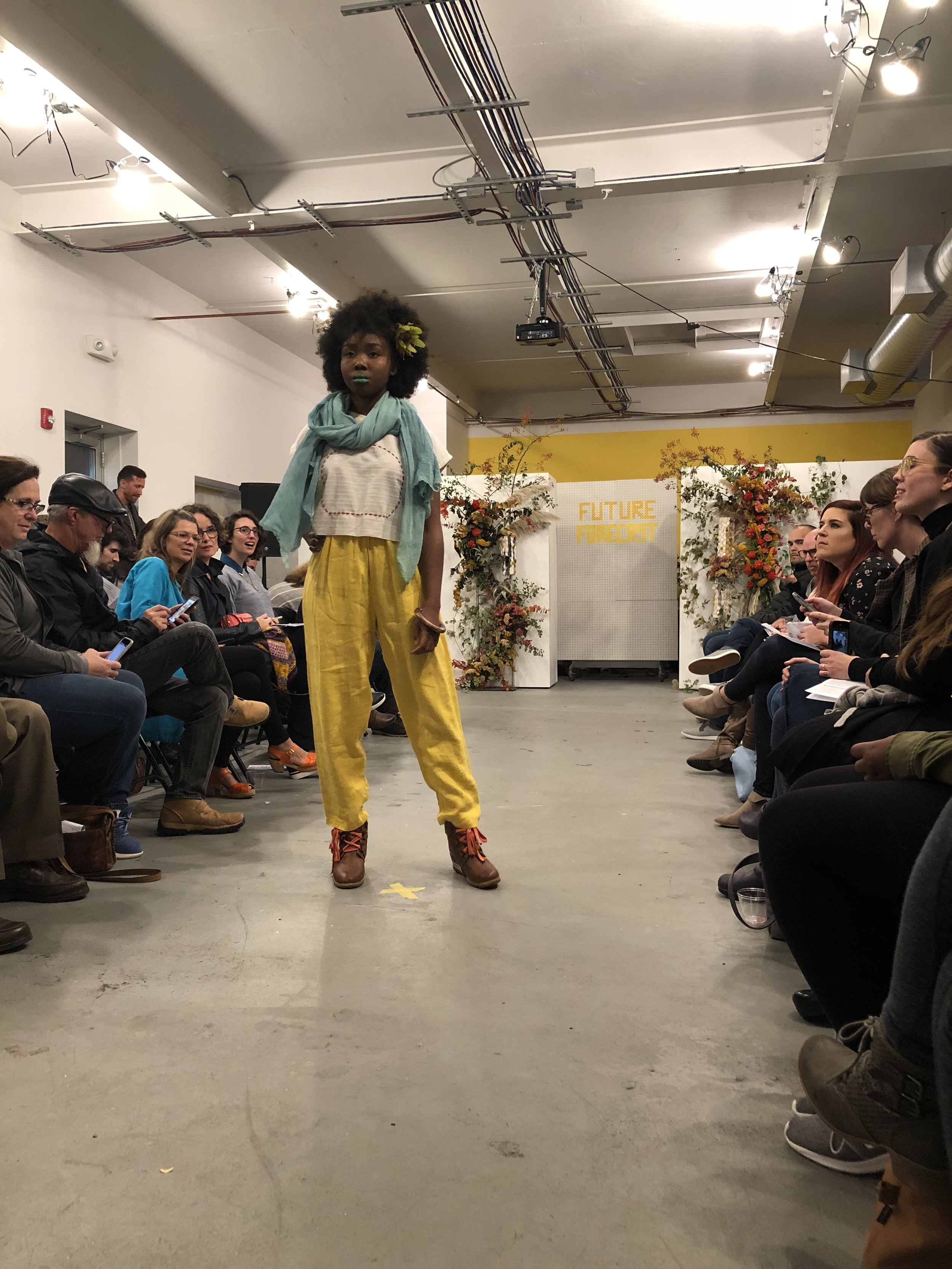
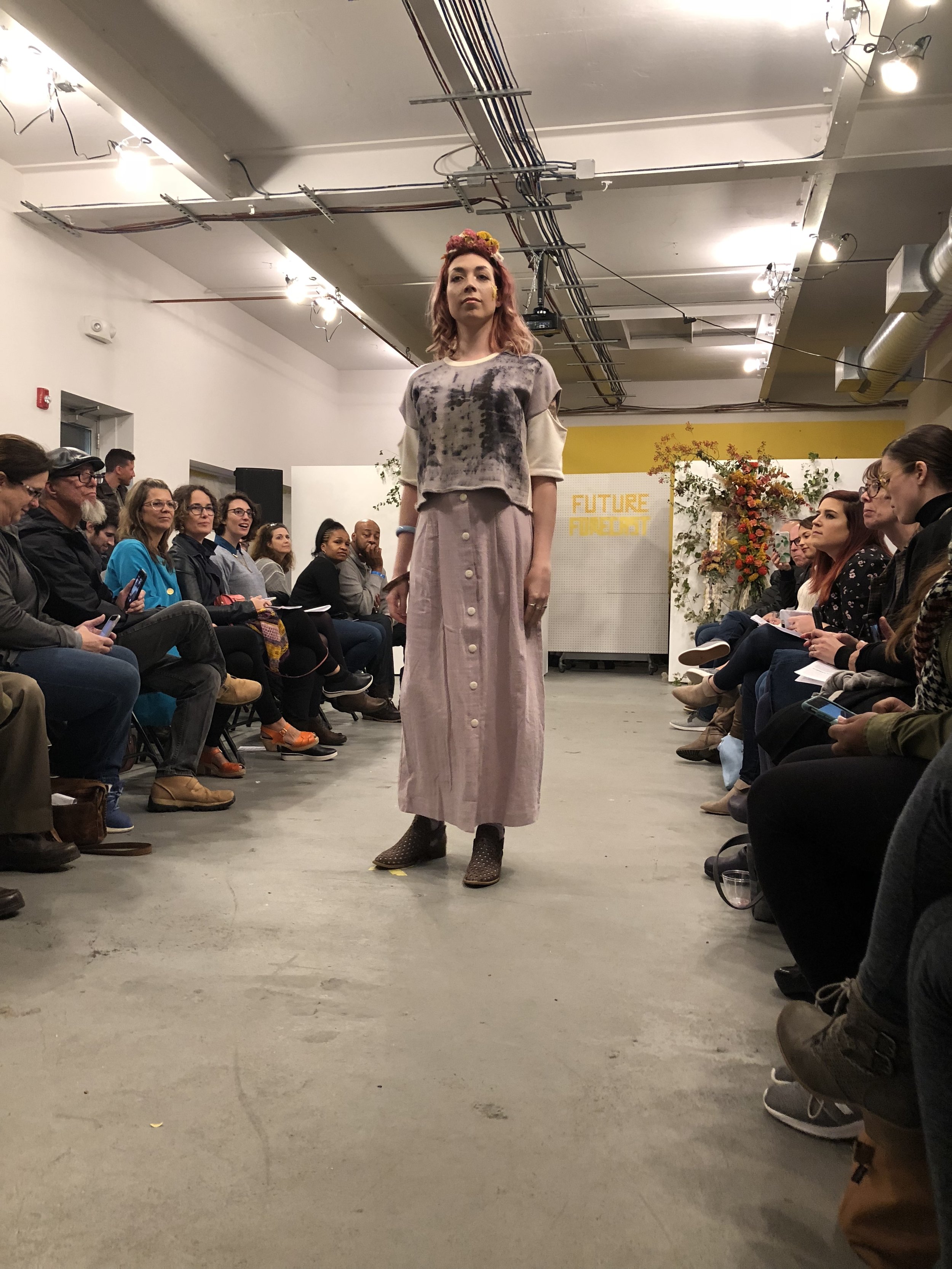
Our Riverside
Our Riverside is a community history and design program at the Cambridge Community Center, a neighborhood institution with a significant archival collection and a nearly 100 year history of particularly serving and supporting black and African American residents of the neighborhood and the city at large. Our Riverside exists to do two things: first, to keep control of the narrative of the Riverside neighborhood with the citizens of the Riverside neighborhood, and second, to develop historical understanding and communication skills for youth and adults, students and families and elders.
In 2017 we guided the youth in asking WHAT IS A COMMUNITY CENTER?
Prompted by the CCC’s capital campaign and building renewal project, this year the youth asked questions about what makes a community center thrive, and learned about the history of the CCC and its building, in order to make recommendations for the future of the Center.
This year they also spent time with the children in the building, learning what mattered to them about the Center and developing creative ways to get a kids-eye view of what a successful Center of the future looks like. Their final exhibition was aimed not at visiting adults, but at the kids they’d gotten to know all summer; they also produced a list of concrete recommendations


